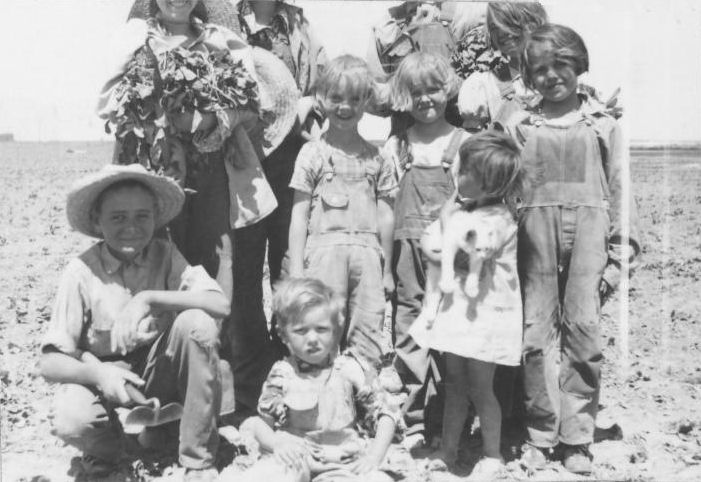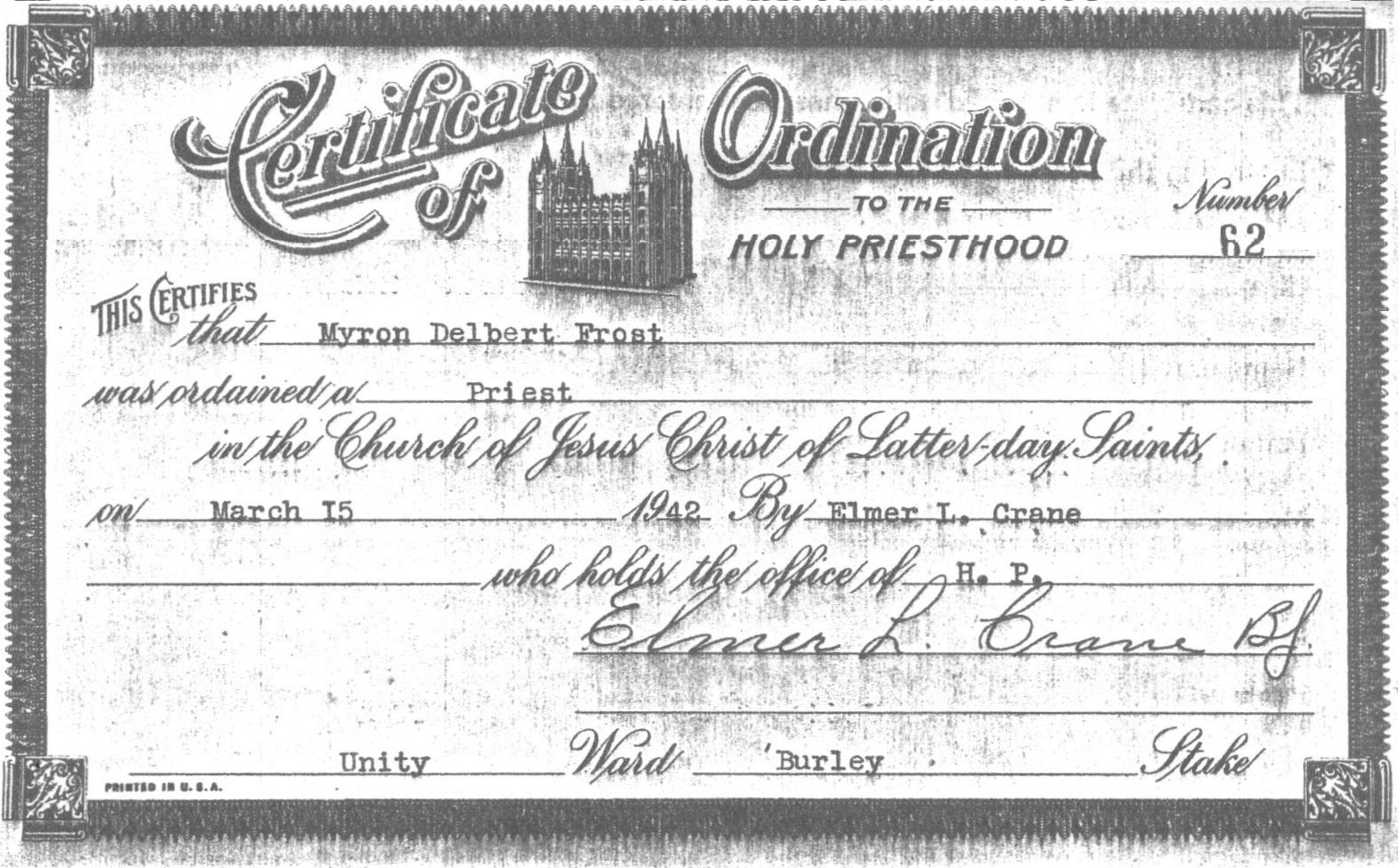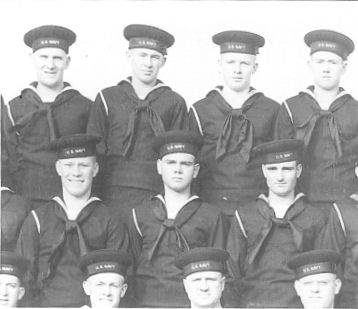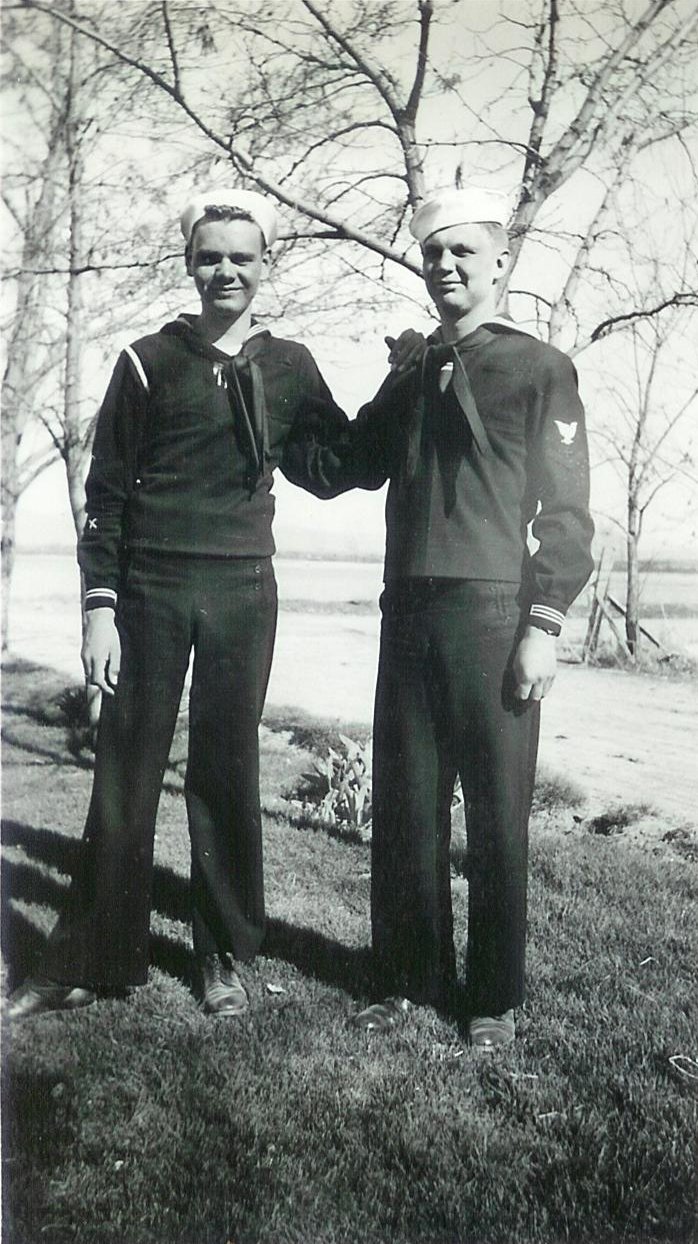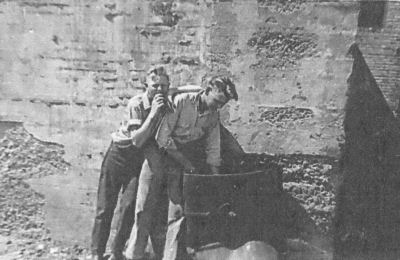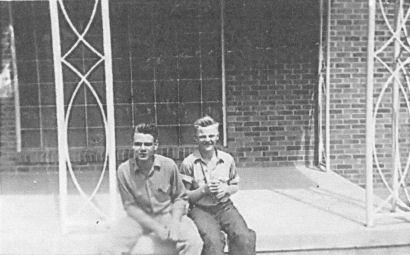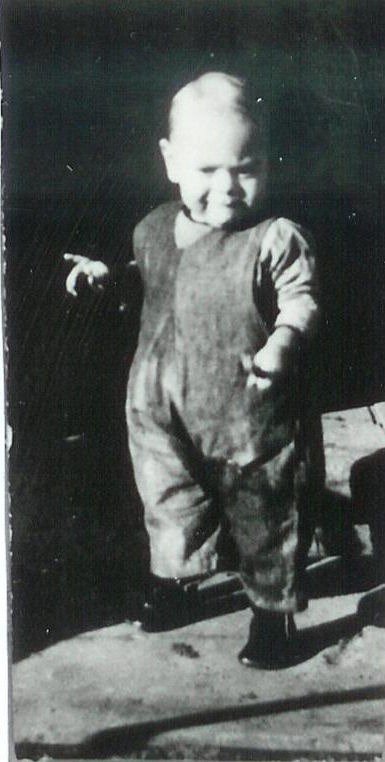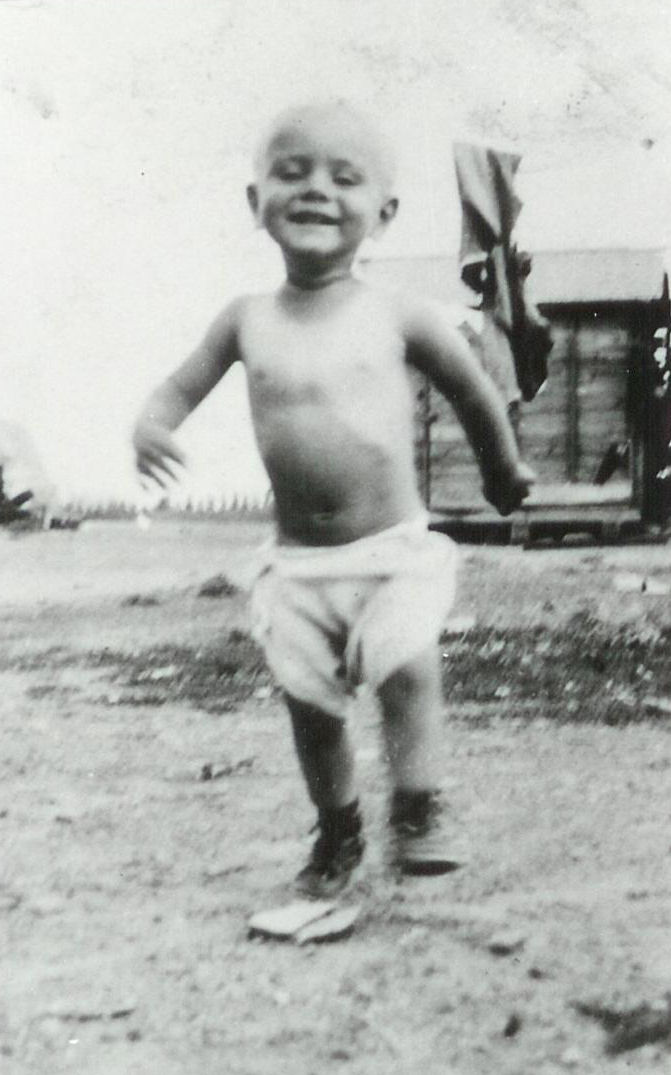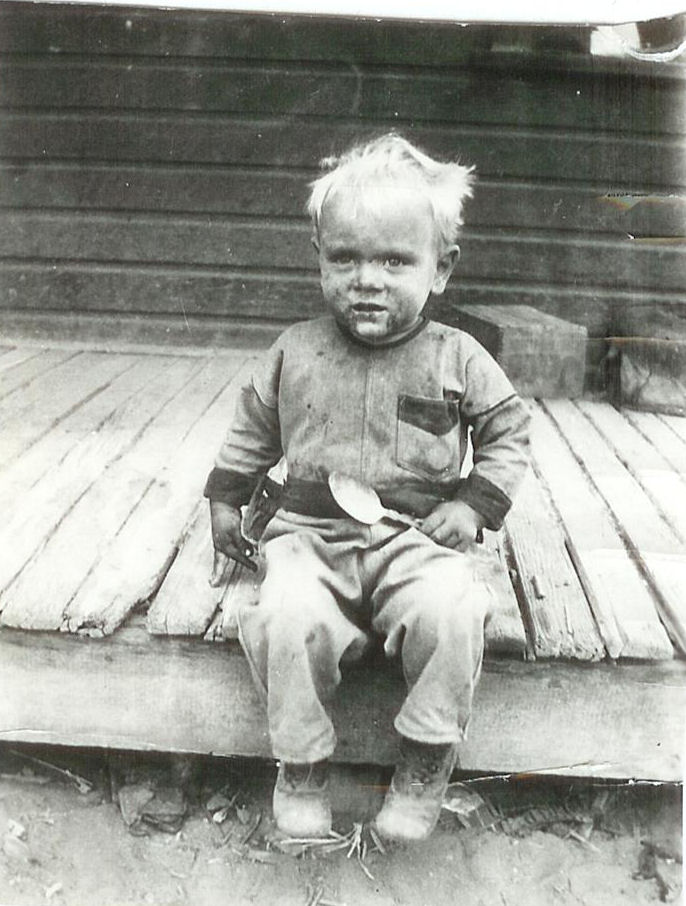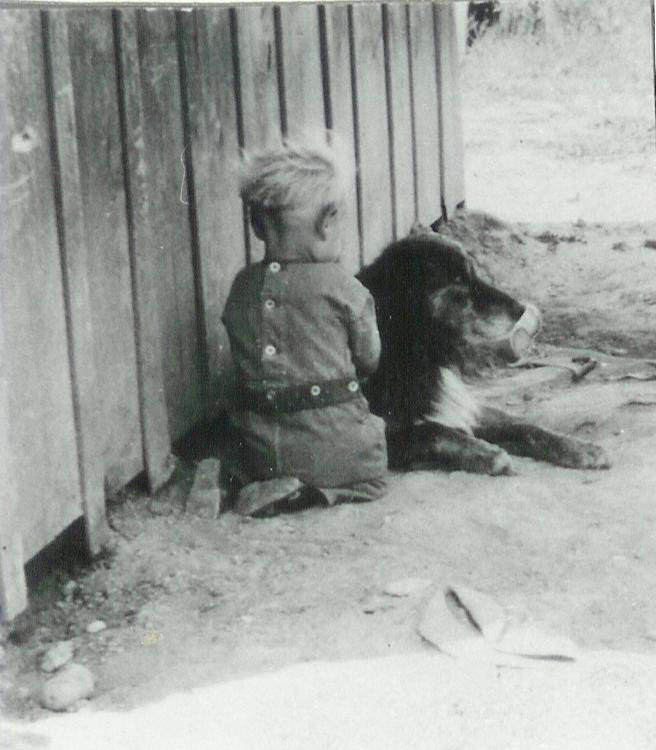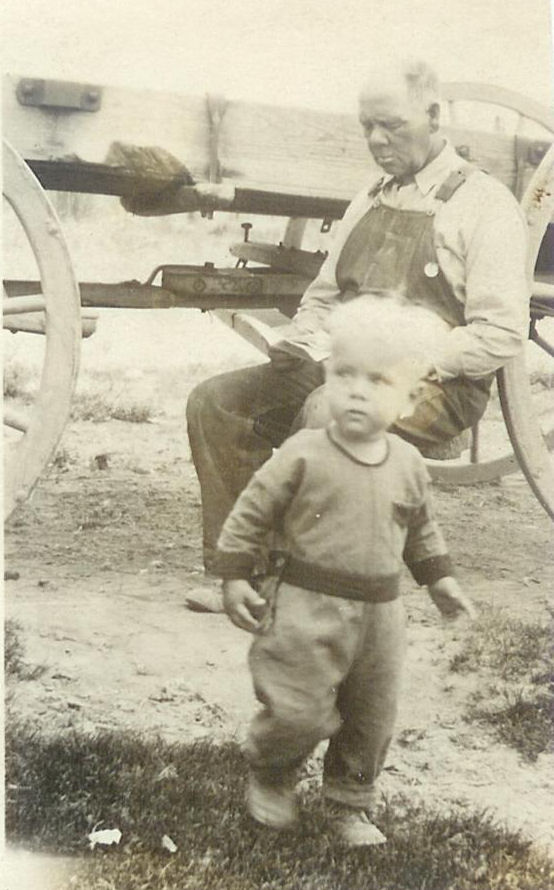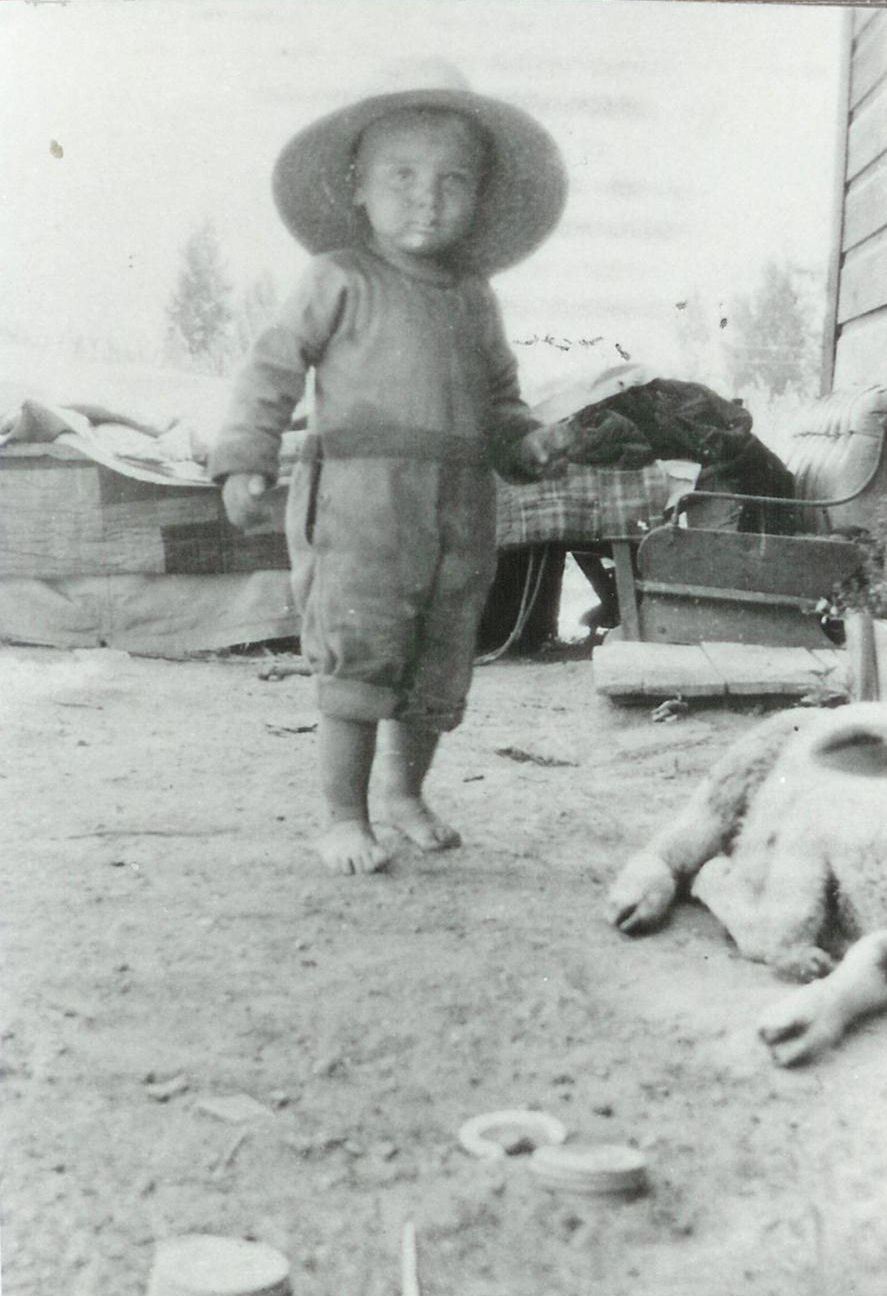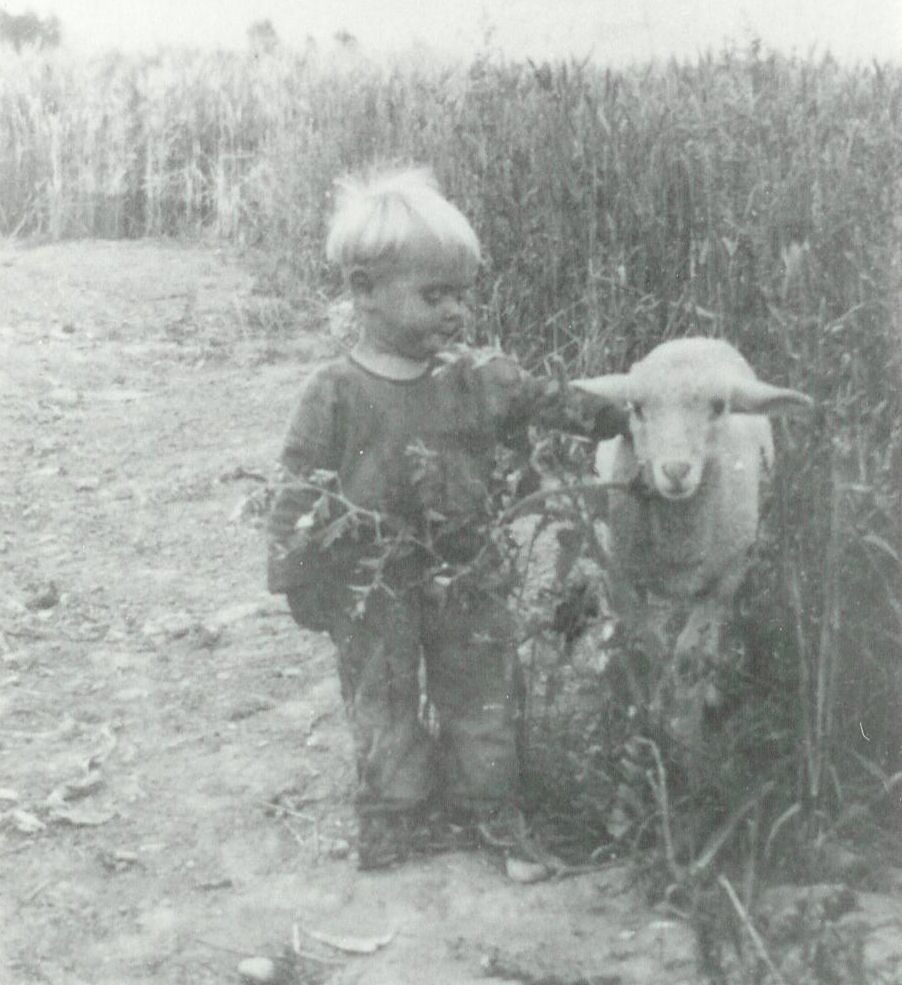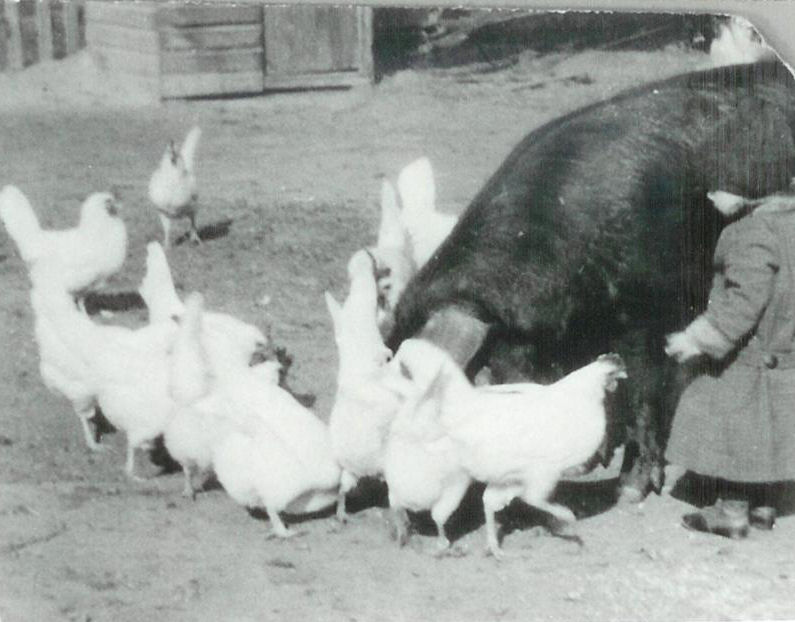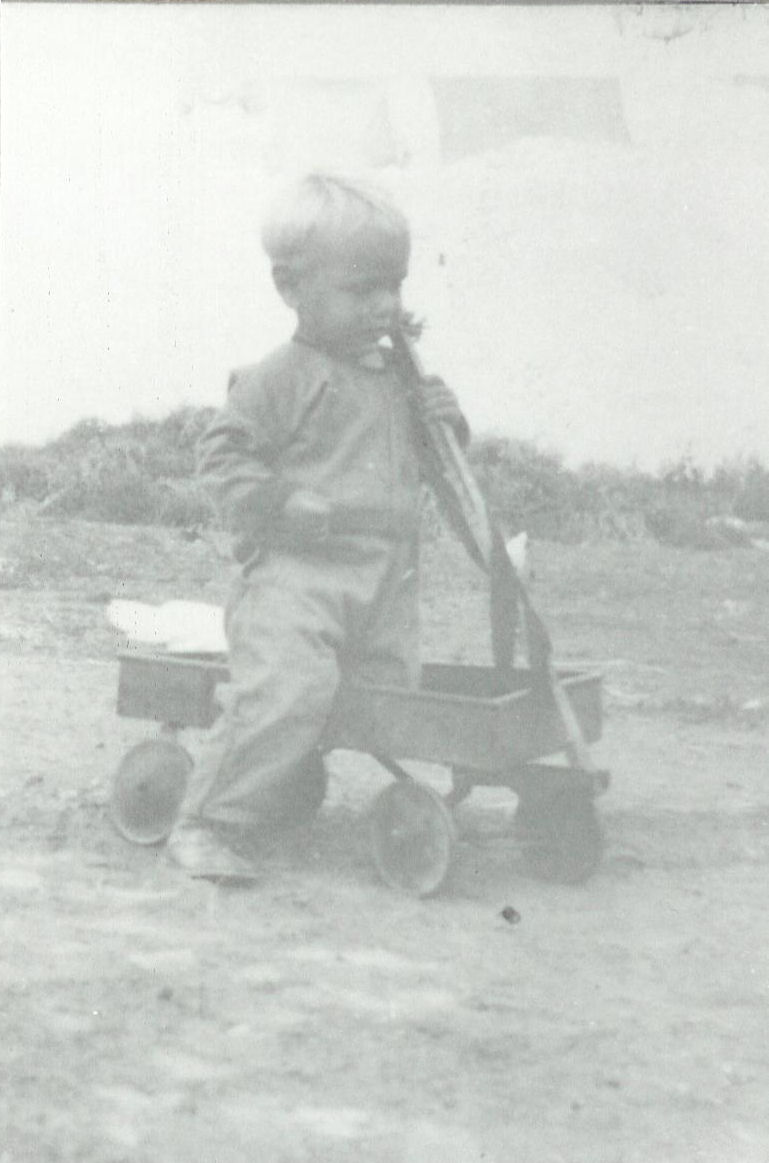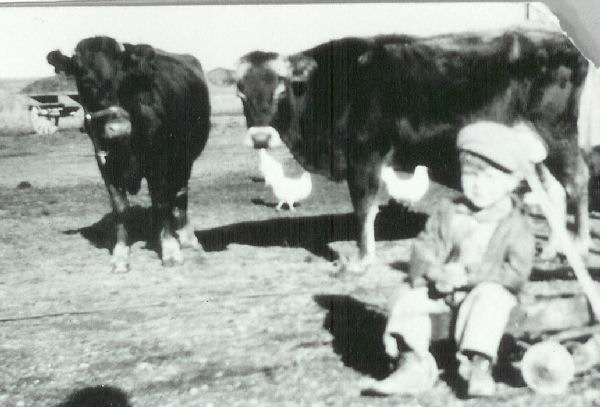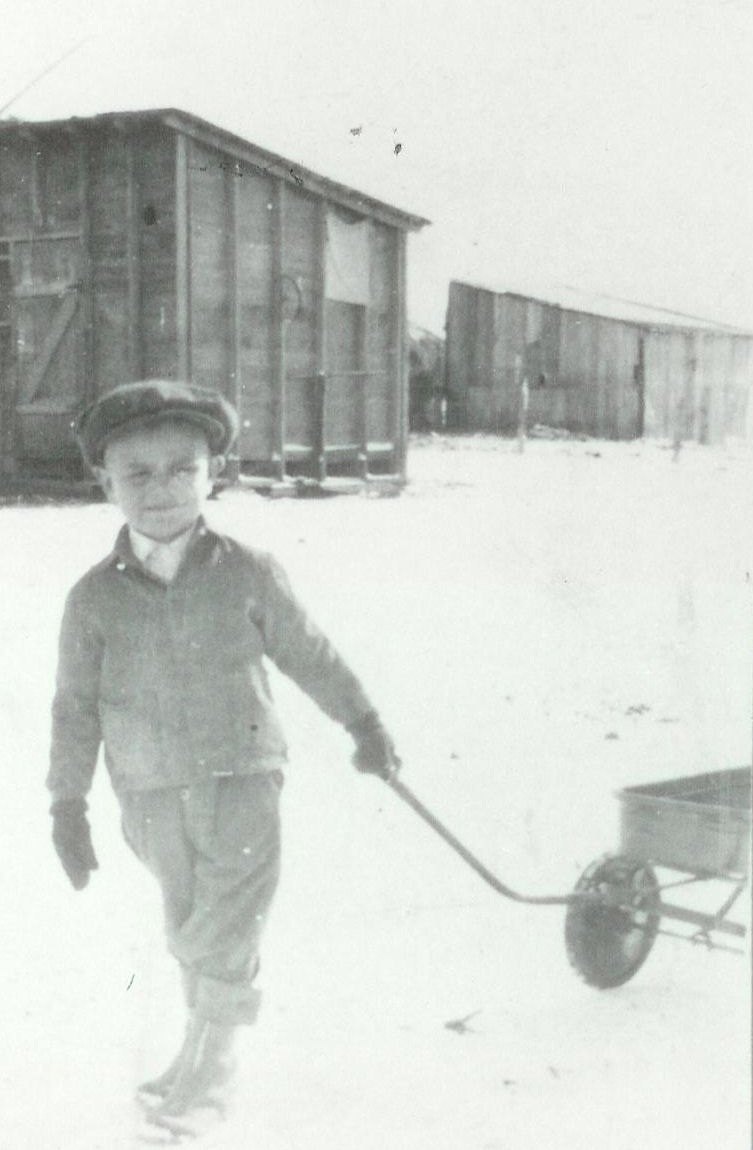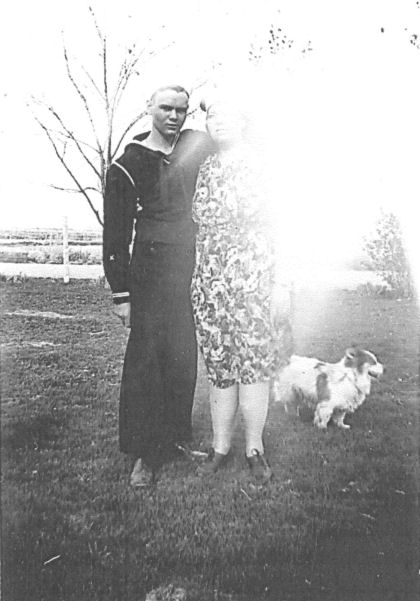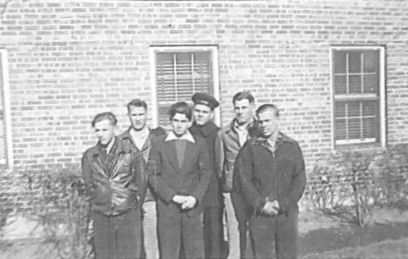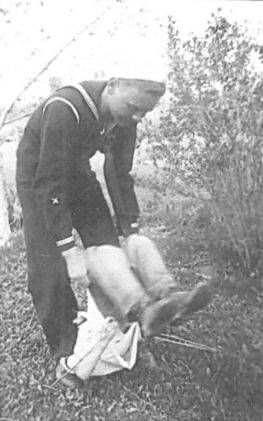5 January 1925 – 18 December 1944
They
were known as “The Greatest Generation”. They were the young men
who stepped forward when the world was in peril and our nation was
faced with dire circumstances. They came from farms, small towns, and
cities all over America. They left their families, education, and
livelihoods and put on the uniforms of the United States Army, Navy,
and Marines.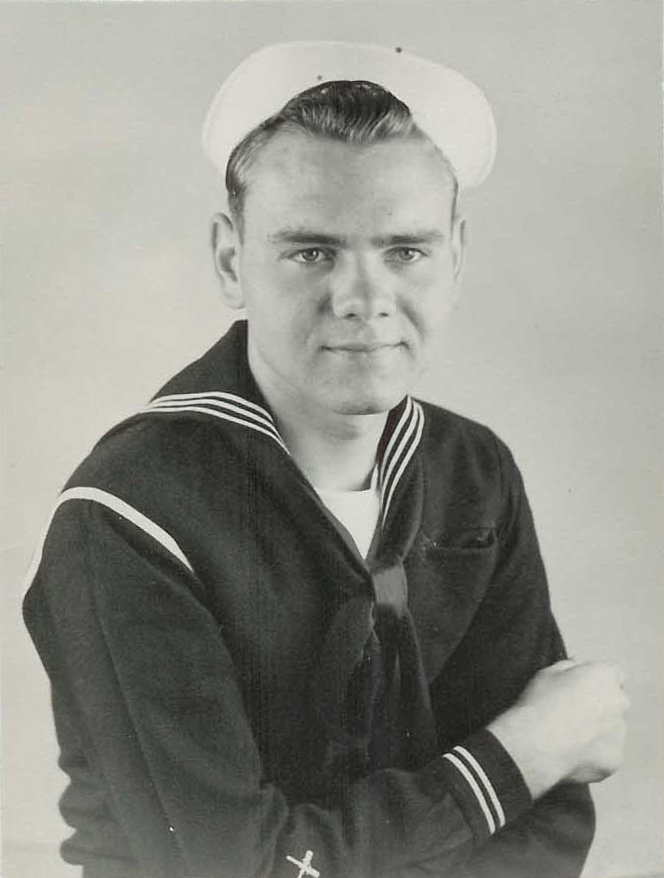
They flew bombers over Europe, stormed the beachheads of the Pacific, and sailed the seven seas. They fought valiantly against Nazi Germany, fascist Italy, and Imperial Japan. In the darkest hours of the war they were all that stood between tyranny and freedom. They dug in and held on until more, and more joined their ranks. Then men and machinery began leapfrogging across the Pacific and move across Europe until they arrived on the doorstep of our enemies and subdued them into surrender.
Oh so many of them did not make it. Gold stars replaced blue ones in the front windows of homes all across the country. They gave the ultimate sacrifice for our liberty, freedom, and way of life. This is the story of one who didn't come home. It is the story of the life, service and loss of Myron Delbert Frost.
Myron came into
the world on January 5, 1925 in Burley, Idaho on a wintry day. He was
born in a two-room house one and a quarter miles west of Burley right
under the first lift canal. When Dr. Rich got there, he only got one
glove put on when the little boy came. Myron was blessed on March 1,
1925 by David L. Langlois. 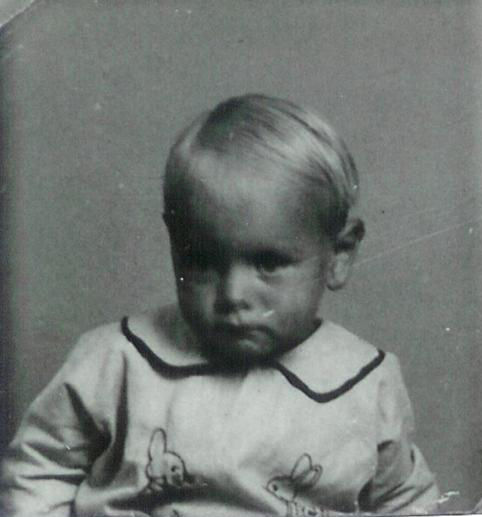
Myron was a cute
little boy and grew into a handsome young man. Like other children
had a few childhood diseases, like chickenpox, measles, and mumps,
and possibly scarlatina, and was vaccinated for smallpox.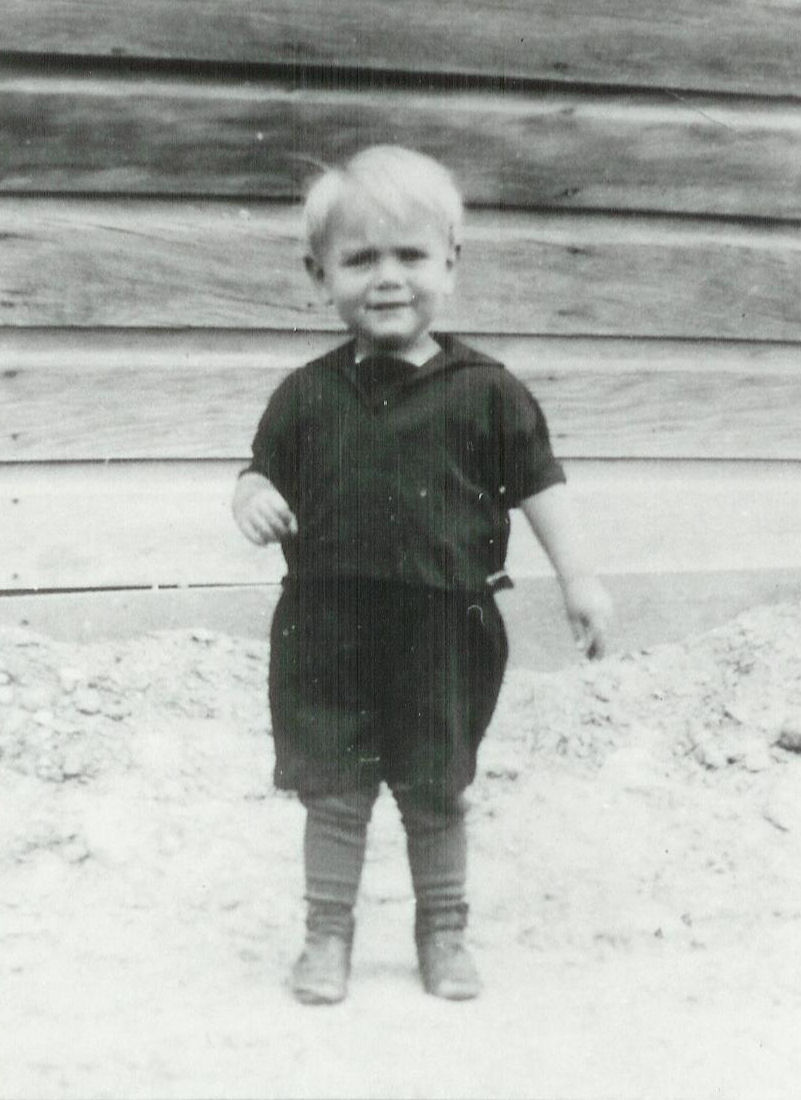
He was the third child and first son of Ira and Vyla Dayley Frost. His two older sisters were Eunice and Thelma. He was quickly followed by two more sisters, Celia and Lorna. Although outnumbered by girls, when they tried to put him in his place, they usually ended up the loser.
When he was
little, his Daddy made a pistol of wood for him. Ira carved it so
painstakingly and put a spring in to shoot wooden bullets. Then he
covered it with something which made it look to me just like metal. 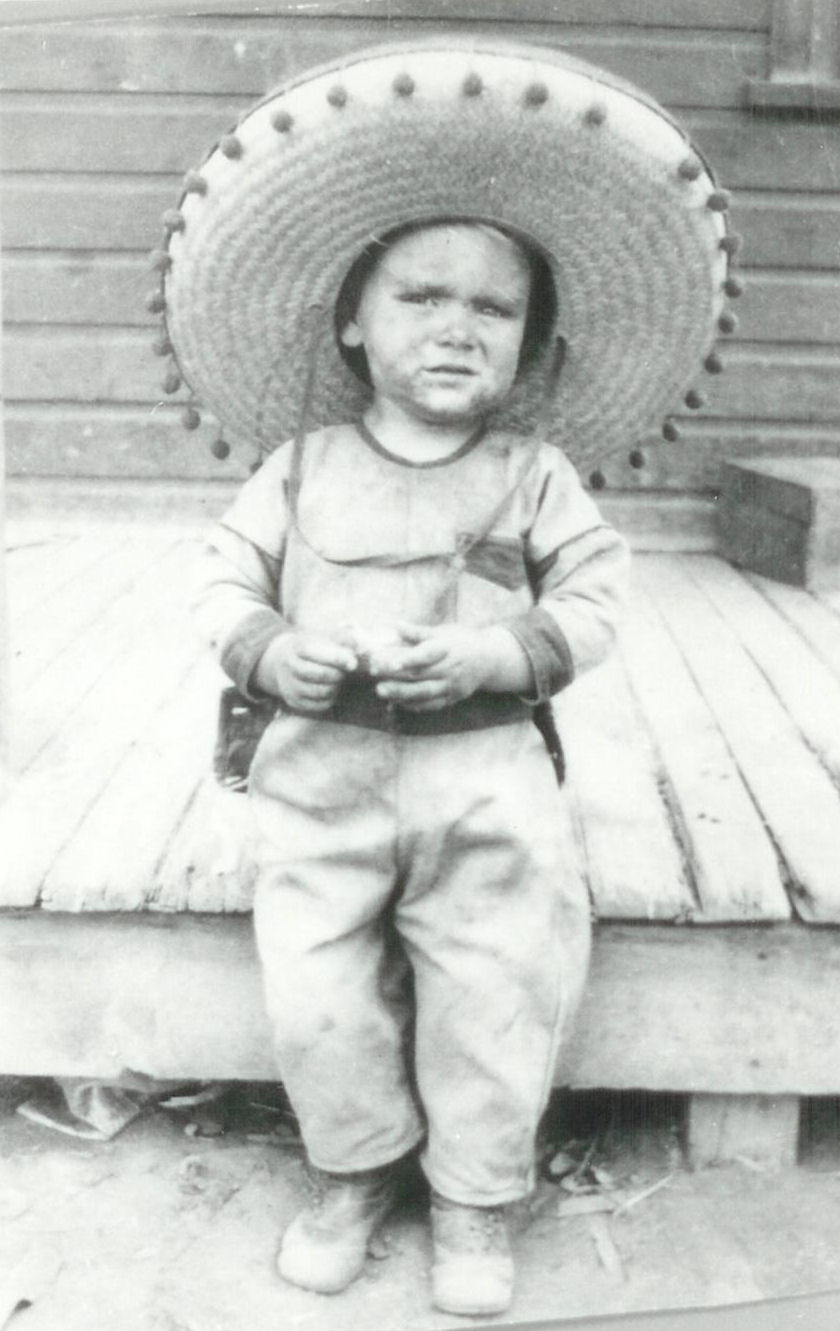
As Myron and his four sisters grew from babies to toddlers to children, the family grew as well. They were joined by two more sisters, Marian and Irma. Myron was particularly excited when he finally got a brother when Gerald was born. One more sister, Kathryn finished out the family. Myron had seven sisters and one brother.
Myron was baptized on April 30, 1933 at the Burley Tabernacle by Linford Manning and was confirmed on May 7, 1933 by his father.
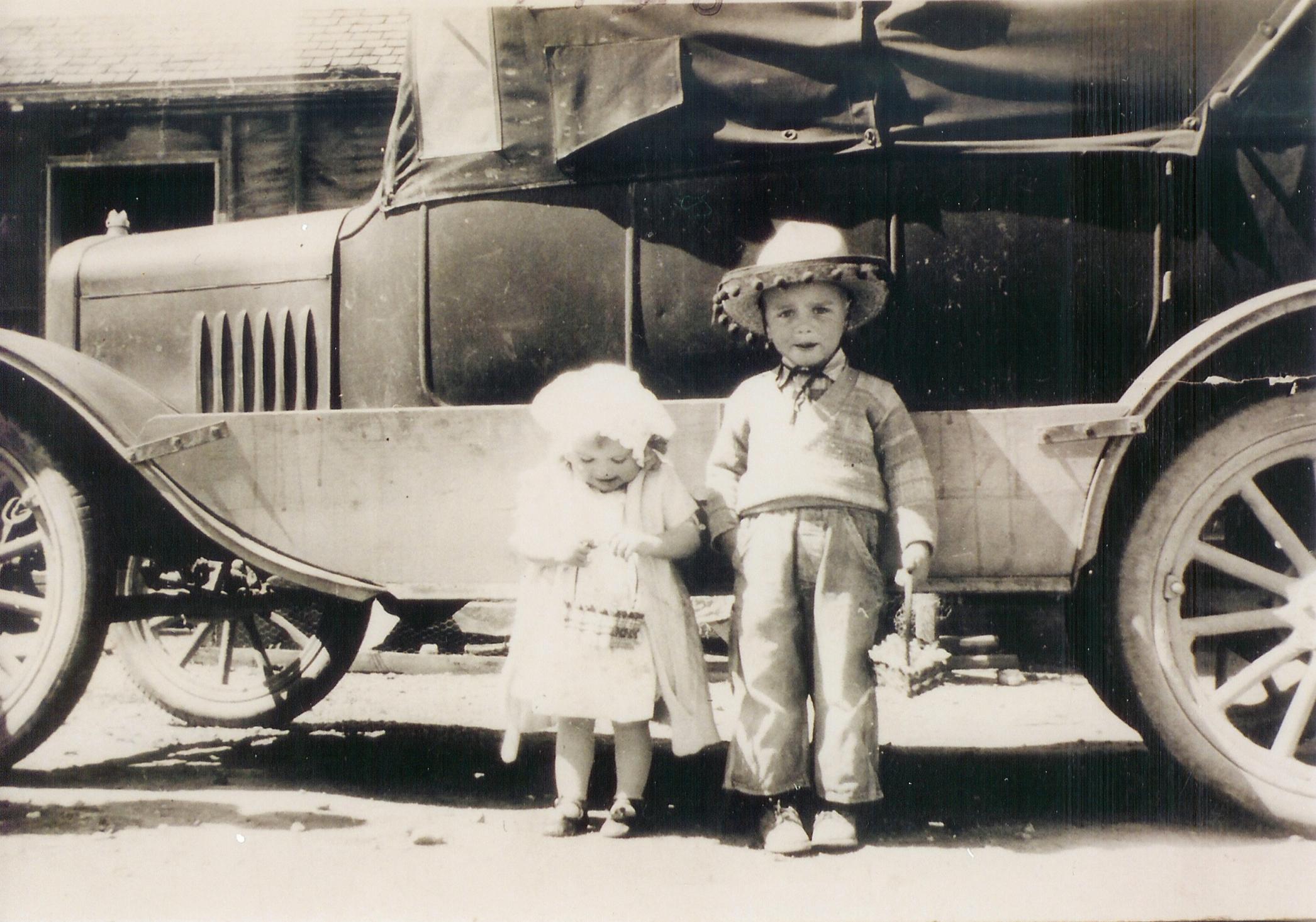
Celia and Myron at Easter
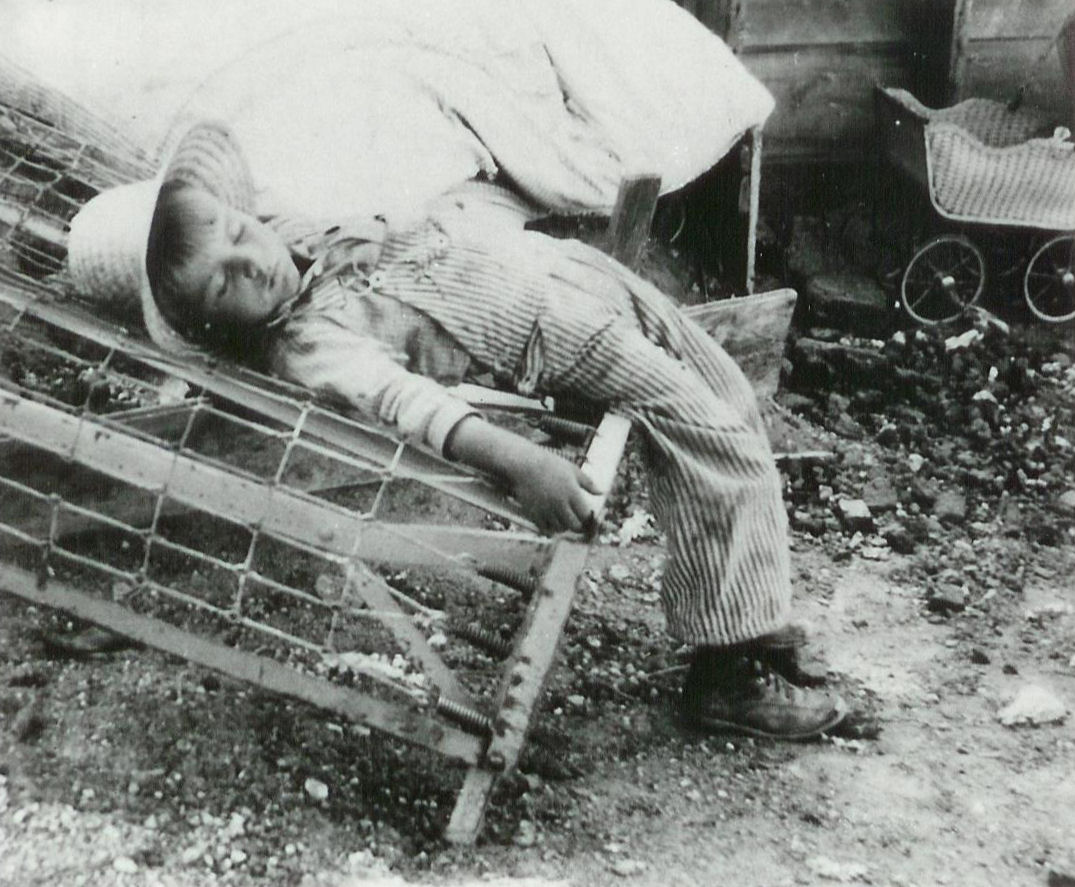
Nap time
As a family they
moved around until they finally settled on a farm in Unity in 1930,
which they were eventually able to buy. A little while later the
Gooch family moved in just up the road. Their family was of
comparable size with children of the same ages. The Gooch boys, Joyce
and Byron were about the same age as Myron.
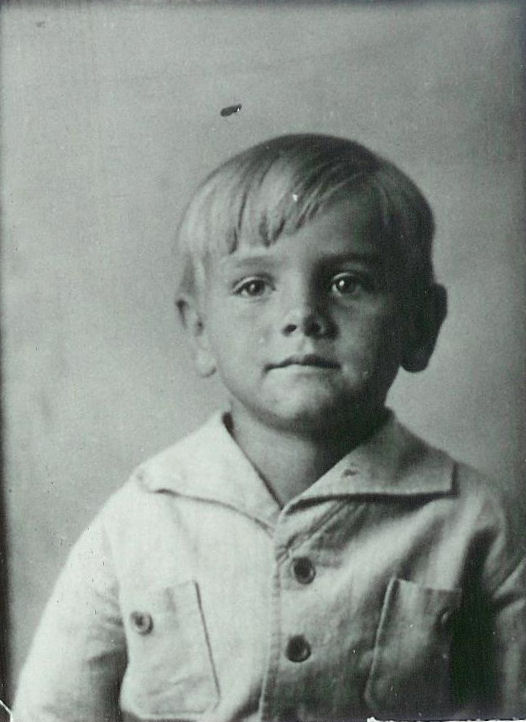
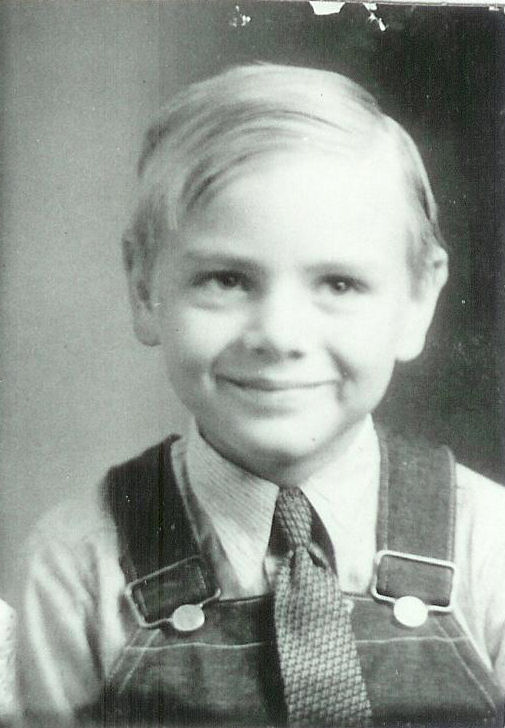
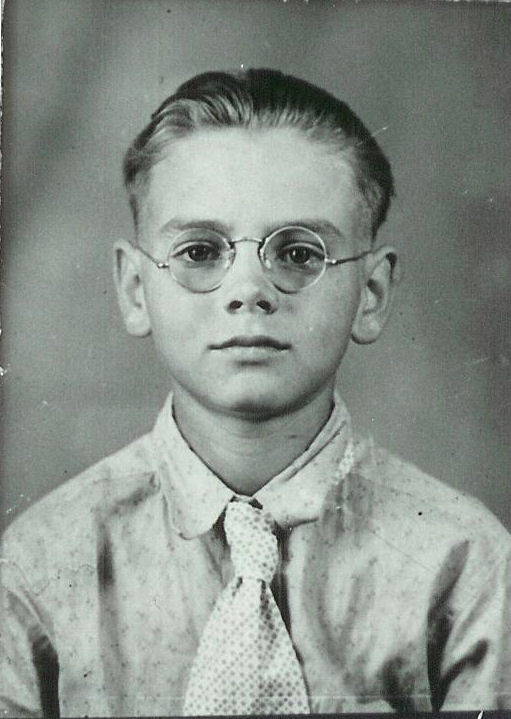
On a hot summer day in July of 1934 some of the Gooch family were visiting with the Frosts. Myron and the Gooch boys were in the corral riding calves, when Celia discovered little year and a half old Irma floating unconscious in the irrigation ditch. She was snatched from the ditch and rolled over a barrel to drain the water from her lungs. With everyone gathered around, they wrapped her in blankets and, as she opened her eyes. Thankfully, she was alright.
His sisters and brother were his best friends. As kids, the Frosts and the Goochs had many many ball games in the pasture south of the house, Myron was a good hitter. Lots of time they used home made balls that Mrs. Larson taught them to make out of string. They were not the best but better than none. And one of the favorite things was the old swimming hole in the canal. That was one of the things he liked to do best.
When Ira traded
his pride and joy saddle to get a bicycle for the kids, it was Myron
who liked to claim it as his, but they all used it as much as he did.
It just seemed that a boy should have a bicycle but he had to share
with all the girls! There was the dog, 'Tootles' that kind of seemed
to be Myron's because every boy is supposed to have a dog. He got a
lot of satisfaction from that dog. Another of his pets was Nellie,
the goat.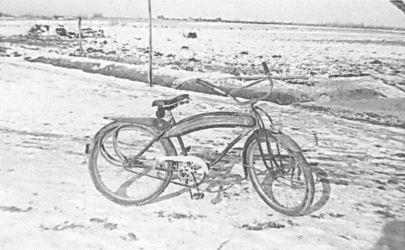
Myron's bicycle
Myron was the
best bicycle fixer, horse bridleler, and kite maker in the country.
He made the neatest kites from brown wrapping paper and even
newspaper. One Christmas he made some doll clothes hangars as gifts
for Eunice and Telma. By the time Christmas came, they were lost and
he was unable to give them to them. He also liked to build model cars
and airplanes. He was so precise in cutting the pieces so they would
fit together. Then he carefully glued the parts together and painted
them. He took pride in whatever he did. Myron liked to climb trees,
whittle, and could make neat whistles out of a willow.
Times were hard and the Frosts struggled to make ends meet. While Myron and his sisters were children, the country was in the gripes of the Great Depression. To make ends meet, it was necessary for them to do their part. There were chores to do as the animals needed fed and wood chopped and several other chores around the house and on the farm. His job was to split wood into kindling, load it onto his wagon, bring it into the house, and stack it into the woodbox. Once Ira heard him when he was having a hard time getting the wagon through the door and he said something like "damn it to hell!" Words not appropriate in the Frost home. He never did swear after that. He lugged hundreds of buckets of coal into the house, pumped hundreds of buckets of water to bring into the house for the family's needs.
Myron learned
to milk at an early age. After hobbling the cow, he sat on the
wooden stool and began milking, the first squirts hitting the bottom
of the bucket. If the other kids were around, he sometimes squirted
them with milk. The cats loved him because he aimed the milk right at
their mouths.
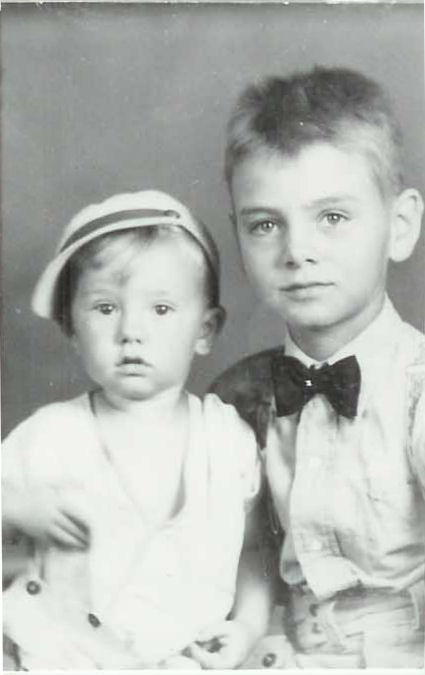
Gerald and Myron
Every morning after milking, it was his job to take the cows to the pasture to feed during the day. The herd was trailed down the road and across the highway to the pasture next to the river. They were left there all day to feed. In the evening, they were rounded up, trailed up the hill across the highway and taken to the corrals to be milked. Most times one or two of the other kids helped him. At times they spent too much time in the pasture when they should have been bringing the cows home. Sometimes they stopped at the "little cave" and then on to the "big cave". He told the girls that Bigfoot lived there. It really wasn't a cave, more of hole in the side of the ridge. On more than one occasion they got all muddy in the slough, picking cat-tails, and wading in the creek. There was also frogs to catch and squirrels to shoot at. It was great fun, and especially if several went together. Sometimes the herd was down to the farthest end of the pasture and it was quite a job to get them. Other times they were at the gate ready to go. Getting the cows from the pasture was a daily chore all during the summer months every year.
Some of the dogs
they owned were good cattle dogs and helped. One of the family dogs
became sick and bit Myron when he went to the pasture to get the
cows. That frightened him and he came back without the cows and just
wouldn't go down there again, so Ira had to go himself. Ira had to
shoot the dog. 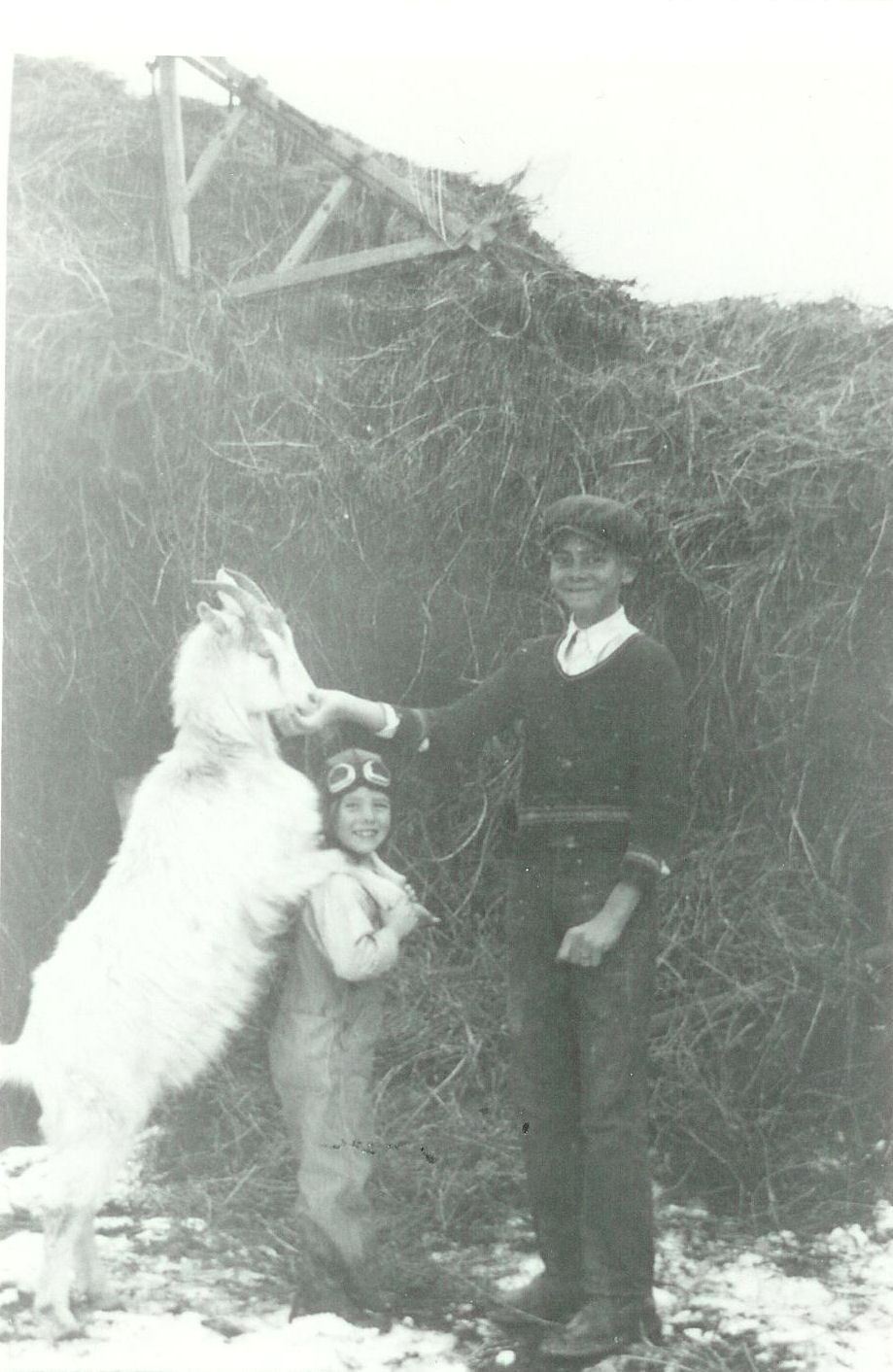
Nellie, Gerald, and Myron
One time, Myron had Gerald and Kathryn on "Old Prince," the workhorse and he went into the slough. Something happened as he was coming out, and they all got dumped into the water. Gerald was between Old Prince's hind feet and Kathryn was between his front feet. Myron was to the side. The mud was thick and they were stuck. Myron immediately took action to get Kathryn and Gerald out safely. Luckily the horse just stood there waiting for them to get out of the way. He was always a calm and patient horse and that's why they all loved him. Joyce Gooch stood on the bank laughing so hard. He thought that was really funny. With Gerald and Kathryn safe, Myron really bawled Joyce out for laughing at a potentially dangerous situation. And that was not like Myron to get mad at anyone, especially his best friend. Myron was pretty angry at him, because he didn't think it was funny at all.
After the milking was done, the cream had to be separated with the old cream separator on the back porch. When it was Myron's turn to run it, he always asked Kathryn to get him a container for the cream to fall into by singing a little song to the tune of "You're In The Army Now". The words went: "Something for the cream, something for the cream; Hurry back my little `K'nack' with something for the cream!" She hated that nickname, but somehow when he called her that, it was ok. The song he sang to Marian made her mad too. He sang "Mammie, come kiss your honey beau. Kiss him once again.”
Myron worked in the fields with Ira; haying, helping with the wheat crop and whatever needed to be done. He learned at a young age to pitch the hay onto the wagon, help place it on the haystack just right.
The whole family worked in the beet field thinning and hoeing beets. The beets were topped by hand and thrown into the truck. The potatoes were dug and left lying on the ground They had to be picked up by hand and put into burlap sacks. Those where hard jobs for a man, let alone children. Myron would encourage the others to keep going when they got tired or lazy. One autumn day while picking potatoes Celia was just coming into the field eating an apple. He threw a large potato clear across the field and hit her right in the mouth. She ended up with potato in her mouth and the apple on the ground!
Vyla would shave or clip Myron's hair when school was out. But by the time school started again it was about the right length. He always wore bib overalls and chambray shirts. Myron hated to go without a shirt in the summer. Most of the other boys did and they really had to coax him to take his off too. He usually did get a suntan on his back before the summer was over.
Myron always seemed to be happy and was a tease. He loved teasing his sisters, one of his favorites was flipping them with the corner of a dish towel, not that he dried very many dishes. Eunice was particularly annoyed by the funny noises he made. No wonder where he got it from with all the teasing his Grandmas and Grandpas and aunts and uncles did.
He always lived
close to the Savior. His favorite hymn was 'Master the Tempest is
Raging.' He loved Sunday School and Primary. He had his bandalo
filled with all the requirements of the Trail Builder Classes in
Primary. Myron's first Sunday School teacher, Sister Nellie Dayley,
impressed the Word of Wisdom on him so deeply that he never did
forget it. He would get after others he saw smoking when he was a
very small boy. One time when he was coming home from Primary, he
said he saw a bright light a short distance in front of him, when he
would run it would move and stay the same distance in front of him.
He always walked with his sisters and the Gooch kids to Primary until
he graduated and was ordained a Deacon on April 4, 1937 by Ira. He
advanced through the offices in the Aaronic Priesthood and was
ordained a Teacher on March 3, 1940 by Ira; and ordained a Priest on
March 15, 1942 by Bishop E. L. Crane. Myron was proud to participate
in the ordinances administered by the Aaronic Priesthood and as a
Priest, had the privilege of baptizing Kathryn. 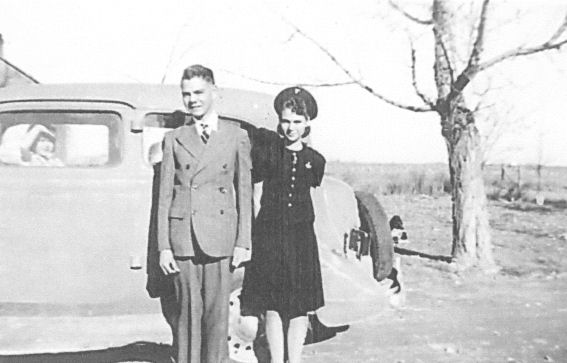
Myron and Celia ready for church
The Frost
children all went to the South West School. Myron was a slow learner
resulting in having a hard time in school. He was held back a grade
twice and was transferred to the Miller School where he could have
special teaching from Mrs. Cora Gamer. Myron hated school from then
on. He had one teacher in Jr.
High that he, along with the majority of the school hated, Old Maid
Miss Kiesz.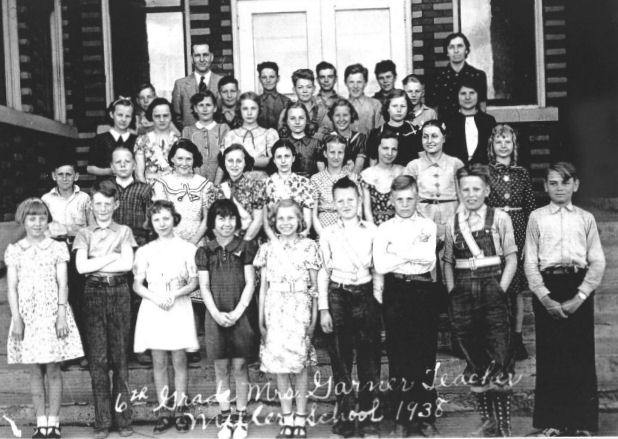
Myron's 6th grade class: He is at far the right
It was at Miller School where Myron first met Helen Wixom. She was a petite shy girl with beautiful brown eyes and dimples. It was her first day of school at Miller School, as her family had just moved to Burley. She was sitting alone in the lunchroom when he walked in and talked to her. They were friends from then on. That was the 6th grade but it wasn't until he was fourteen that he really began to notice girls In general, and Helen particularly.
In Jr High, he took wood working classes. One thing he made was a sweet three legged table. He also belonged to The Rifle Club. Mr Allred was the instructor. He loved learning all about guns, how to care for them and to handle them and how to shoot! He was an accomplished marksman. One afternoon he took Helen for a ride and to do some practice shooting. They ended up in someone's pasture--- he proceeded to teach her how to shoot. She became very apprehensive about being someplace they shouldn't be. He told her, "It's okay, I know the owner, he is my dad."
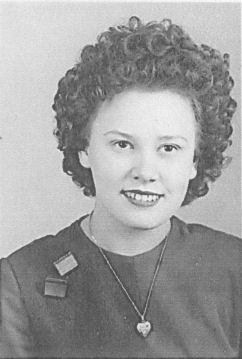
Helen Wixom
They had their
first date May 19, 1943. Unbeknown to Myron, it was her 16th
birthday. He took her to the movie 'Gone with the Wind.' He took
Celia and Marjorie Bunn along with them. He would take Celia, as
well as Lorna and Donna Gooch along on his dates to places such as
the Y-Dell dance hall and ball games.. Celia and Helen were
the same age and were close friends. Myron always treated Helen
with the greatest respect, always proper language and never did any
thing improper. He never ever spoke of their future. She was the only
girl he ever went with.
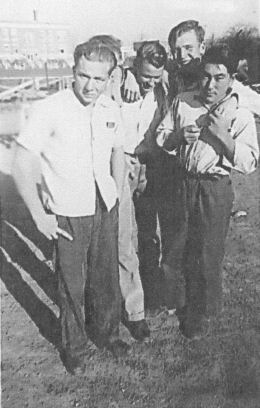
Jay Cunningham, Myron, Daral
Christensen, and Sunny Onisi
He liked sports. In high school while high jumping in a track meet at school fell and broke his arm in two places in the elbow. That was the end of his sports. His arm became perfectly straight, thanks to Dr. Dean. Seminary was another thing about high school that he really liked.
Myron's best guy friends were Joyce Gooch, Elden Lowder, Floyd West, Darrel Christensen, Frank Pike, and Vern Stocking plus others, and his Little Buddy, Gerald. One evening Joyce Gooch was down on his bike talking to Myron by the back door. They were just standing there talking for a long time. Inside the house, one of the girls either, Celia or Lorna, said they had to go to the outhouse but she didn't want Joyce to see her going out there. She waited and waited. Finally she said, "Oh I wish Joyce would go home." Kathryn said. "I'll go tell him" and before anyone could stop her, she ran outside and said, "Joyce, go home." Myron took after her, grabbed her and gave her a real good spanking.
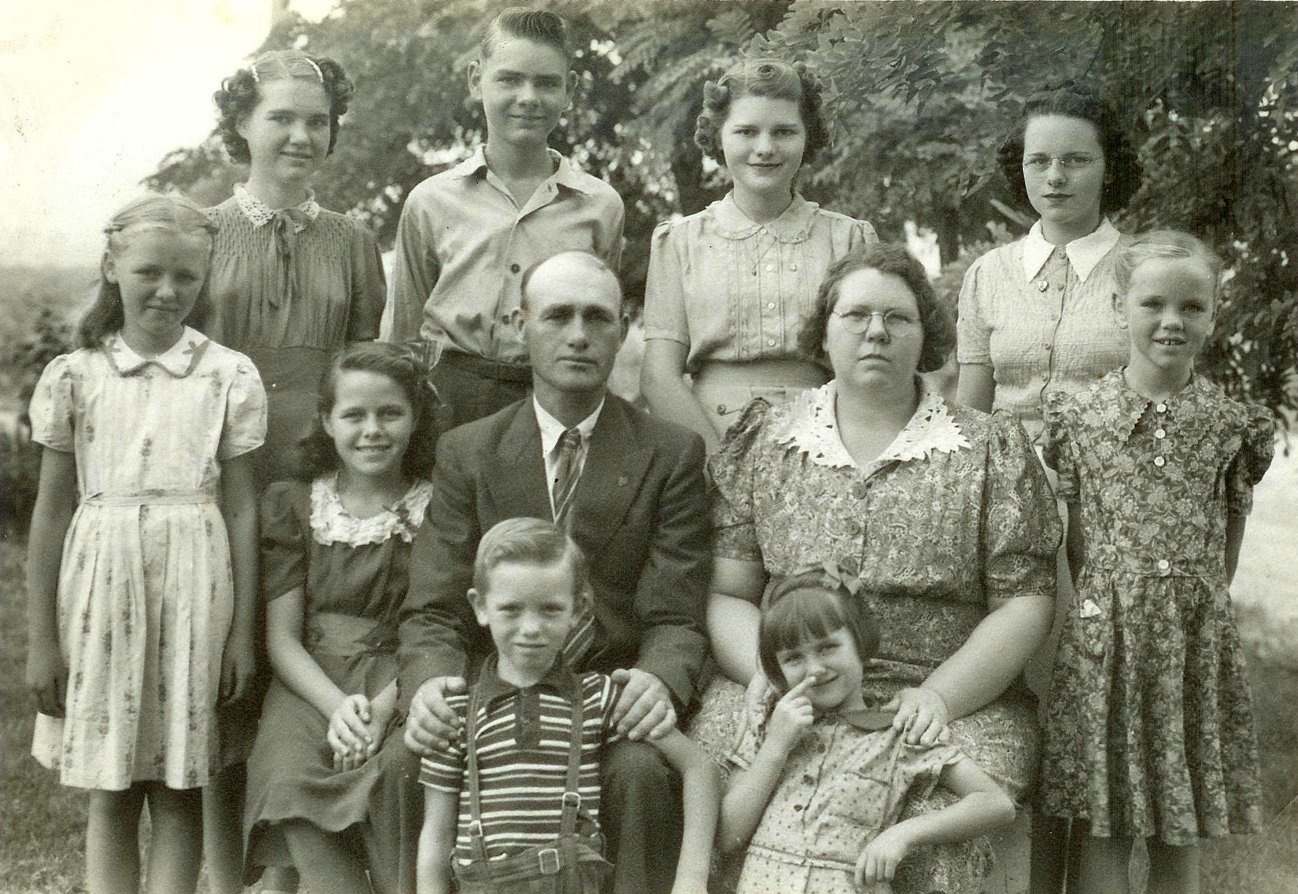
The Frost Family in 1940
Back: Celia, Myron, Eunice, and Thelma. Middle: Marian, Lorna, Ira, Vyla, and
Irma. Front: Gerald and Kathryn.
The depression
years gave way to more prosperous times. In March of 1941 the Frosts
were finally able to have electricity installed in their home. But
all was not right with the world, it was at war. World War II had
been raging in Europe for three years with the United States setting
on the sidelines. That ended just a month short of Myron's 17th
birthday when the the Japanese attacked Pearl Harbor on December 7,
1941. Three days later, Germany also declared war on the United
States.
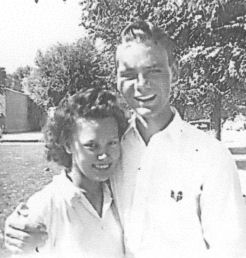
Helen and Myron
Myron was
quickly becoming a man. A man that his country needed. Myron quit
school at the end of his junior year in high school and worked on the
ranch in Raft River again that summer. Since he was 18 and no longer
in school, he knew that he would be drafted. He gave this a lot of
thought and considered enlisting in the Navy. At the time he was
giving serious consideration to the matter, he was ordained an Elder
in the Melchizedek Priesthood on October 24, 1943 by his father. The
very next day he received his patriarchal blessing from Henry
Catmull. 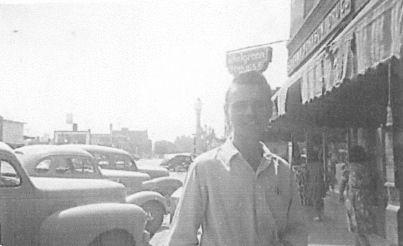
Myron ion town
There was a
married man with a family who was about to be drafted so Myron
stepped forward and offered to take his place. On November 4, 1943 he
returned from Twin Falls and informed his family that he had enlisted
in the Navy. His brother and sisters were so proud of him. Ira was
apprehensive, remembering his own service in World War I.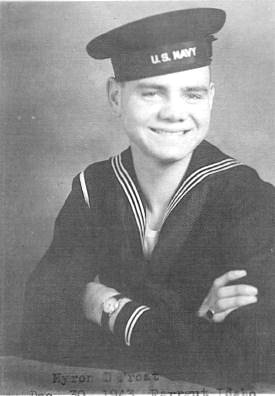
Myron went back to Twin Falls and was sworn into the military on November 11th and on the 18th he said goodbye to his family as he left for boot camp at the Farragut Naval Training Station located about 30 miles from Sandpoint at the far end of Lake Pend Oreille in Northern Idaho. The night before he left, he and Helen along with Joyce Gooch and all the Frost kids tagging along went to a movie.
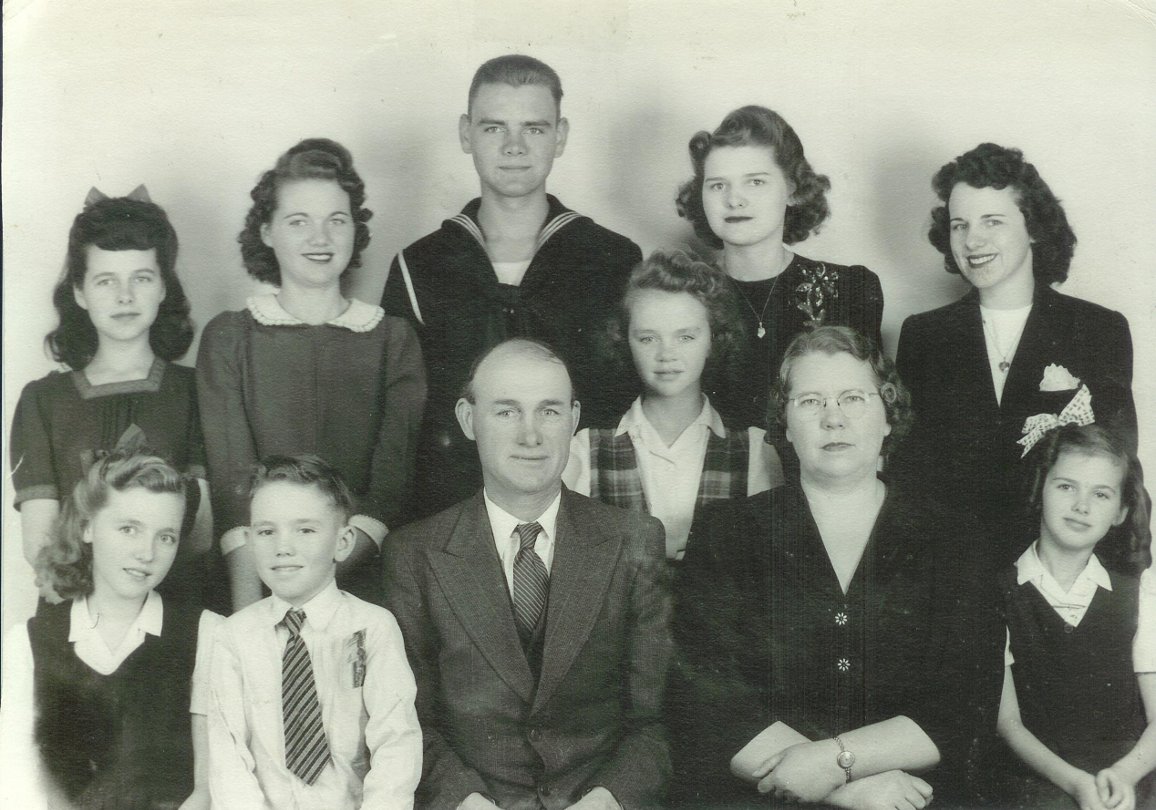
The Frost Family - January 1944. Back: Lorna, Celia, Myron, Eunice,
and Thelma. Front: Marian, Gerald, Ira, Irma, Vyla, and Kathryn.
After eight
weeks of boot camp, he came home on leave sporting his crew cut and
navy uniform on January 13, 1944. It was a wonderful reunion and
everyone was so proud of him. While he was home, a family portrait
was taken. On the 26th he boarded a bus and returned to
Farragut for gunnery school.
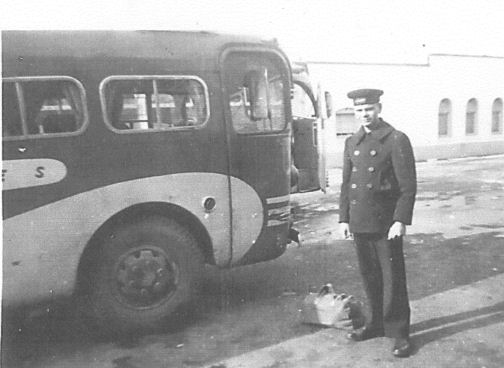
Getting on the bus to go to gunnery school
While at gunnery school he came down with pneumonia and had to be hospitalized. While he was recuperating, his group went on with out him. After he had recovered sufficiently, he was given fifteen days leave to come home during May. He arrived home on May 7th. He graduated from seminary and participated in the graduation program by saying benediction. He had completed the curriculum through a corespondents course from Brother Allred, the seminary teacher. He was honored to receive a diploma on behalf of one of his friends, Floyd West, who was also in the Navy. At that time, Myron made a promise to himself that he would receive his high school diploma.
He wanted to
have a picture taken of him out in the field thinning beets and posed
on the manure spreader in his uniform so he could show his buddies
what he meant by “spreading gold dust.” He divided his time
between his family and his friends. Gerald was so proud when he took
him to the Burley Theater in his uniform. He wanted to shout and say,
"Hey, this is my brother!"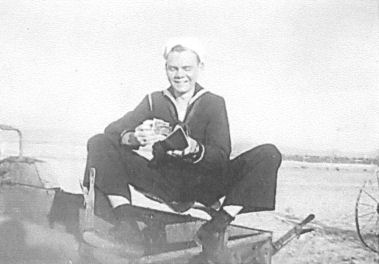
Sitting on the Manure spreader counting his money
When his leave was up, he returned to Farragut where he was assigned to another group and completed gunnery school. Upon graduation, he was granted another eight day leave to visit his family, arriving home on July 13, 1944. He helped furrow out the potatoes and other jobs around the farm, and liked being able to help again. He went to a dance and a couple of shows with his girlfriend and was always so good to let the teenage sisters tag along as they had done so many times before. He told Helen that he was not afraid to die, he knew he had lived right.
It was with regret that the family took him to the bus depot to bid him farewell on the 19th, knowing that he would probably be sent overseas, not knowing if or when they see him again. He boarded a bus for Shoemaker, California where the Naval Personnel Distribution Center was located. He was assigned to a ship, but before it sailed he spranged his ankle and had to remain behind once again. Once his ankle had healed, he was reassigned to another ship, the USS Spence.
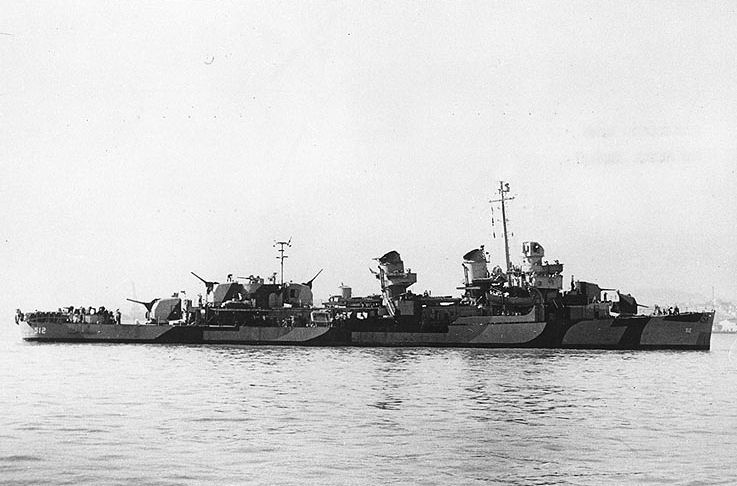 The USS Spence in San Francisco Bay - October 1944 |
The Spence was a
Fletcher class destroyer commissioned on January 8, 1943. After
arriving in the war zone a year earlier, it had seen considerable
action in the South Pacific, earning the President Unit Citation. The
Spence had been at Mare Island Navy Yard since August 18th
for overhaul and upkeep, spending all of September in drydock. It was
during this time that Myron reported aboard.
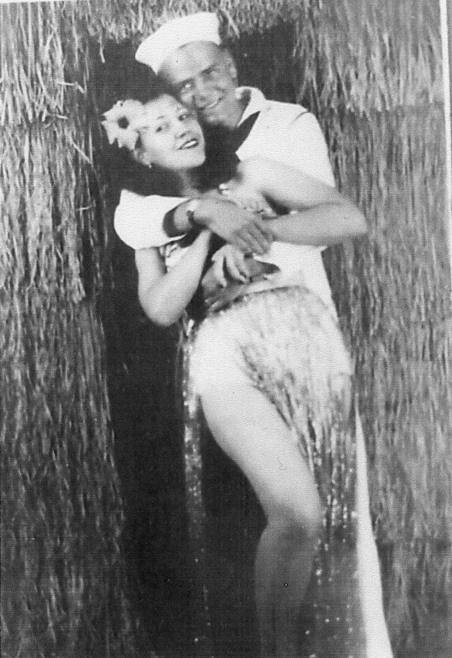
Myron on leave in Honolulu
Myron said they were the best bunch of fellows he had been with yet. He was very well liked and had many friends. One of his buddies later told his parents that Myron was a peace maker, that they would go to him with their problems, and that he would solve them. He said that "whatever Myron would say would go."
Upon completion of the overhaul, she spent two days at sea for trials. That was Myron's first time at sea. Once ready for action, the Spence and Myron departed San Francisco on October 5th. Enroute to rejoin the fleet in the Central Pacific, they stopped over at Pearl Harbor on the 10th for a few days and Myron got to go into Honolulu on liberty. He bought gifts for the family to send home and had a portrait taken that he sent home along with a picture of him with a hula girl.
The Spence arrived at Eniwetok on October 31st and was ordered to Ulithi in early November where she was assigned to Task Force 38.1. Myron got to spend three hours on the MogMog Island, which is one of the four main islands making up the Ulithi Attoll. The enormous lagoon was the anchorage for the fleet. Here the boys were all issued four cans of beer. Myron traded one of his for a cake, one for a can of grape fruit juice, and sold the other two for a dollar each. (He did not know the taste of tobacco, liquor, tea or coffee.) He also climbed a tree and got a coconut for himself and an officer. During those three hours he wrote his last letter home.
At this point in the war, General Douglas MacArthur had just made good on his promise to return to the Philippines in October. The ensuing Japanese response resulted in the Battle of Leyte Gulf, in which they suffered a resounding defeat. Admiral William F. Halsey's Third Fleet was conducting operations in the in the Philippine Sea against the Japanese in support of the MacArthur's forces.
The fleet sailed
on November 6th for the Philippines and the Spence was
part of one of the four carrier task forces that made up Task Force
38 as they launched aerial attacks against Japanese targets on Luzon.
The Spence returned to Ulithi with Task Force 38.1 on November 24th.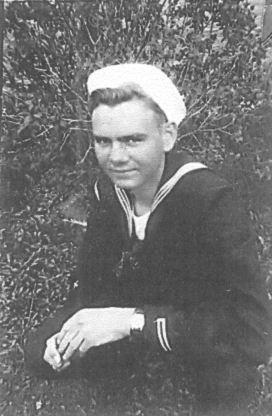
Admiral Halsey's Third Fleet put to sea once more on December 10th, to cover the landings at Mindoro from the 12th through the 16th. This time the Spence was part of Task Force 38.3, one of the three carriers task forces as their planes carried out attacks on the Japanese. This particular task force included 3 large carriers, two light carriers, 3 battleships, 5 light cruisers, and 20 destroyers. The other two task forces where of similar composition.
During the operation, American aviators destroyed over 270 enemy aircraft, most of which never got off the ground. They reported sinking 18 Japanese ships, mostly small and medium sized tankers, and damaging 37 others. The Third Fleet's losses were scant. No ships were damaged and only 27 planes were lost to enemy anti-aircraft fire, with another 27 put out of commission.
By the 16th, Halsey's entire task force was low on fuel, the destroyers in particular were riding high in the water. That evening he directed Task Force 38 to withdraw four hundred miles to the east into the Philippine Sea were they were meet up with the tankers. Fueling was scheduled to begin at 8:00 the following morning. At 5:00 on the morning of the December 17th, a patrol plane flying out of Ulithi reported a tropical disturbance 225 miles from the rendezvous point. By the time Halsey's task force approached the tankers, they were encountering a cross swell and 30 knot winds which made refueling nearly impossible. The first order of business was to refuel the destroyers. The wind and the waves tossed and rolled the vessels and the fuel transfer lines snapped. Due to these circumstances, refueling was postponed.
The Spence was down to between 10 and 15 percent of her fuel capacity and was being tossed around like a piece of driftwood. When a destroyer is low on fuel, the oil in its bunkers sloshes from its center of gravity in a downwind direction, thereby increasing the roll.
By 7:00 a.m. The wind had intensified to just under gale force, the swell resembled rolling hills, and the sky was completely overcast. The Spence was in serious trouble as the storm continued to intensify. A few minutes past noon, Admiral Halsey himself signaled the Spence to steam along the starboard side of his flagship, the USS New Jersey which was in the same task force.
Fueling a
destroyer from a battleship, as opposed to from a tanker, was often
less treacherous in high seas, as the battleship's size and
maneuverability would create a windbreak for the smaller vessel.
The men on the Spence were tossed about like rag dolls as they
struggled to secure the fueling lines. As the two ships rose and fell
with swell, a colossal wave pitched the Spence to port, severing the
lines that held the ships together. As the Spence rolled to port, her
mast nearly struck the New Jersey's bridge.
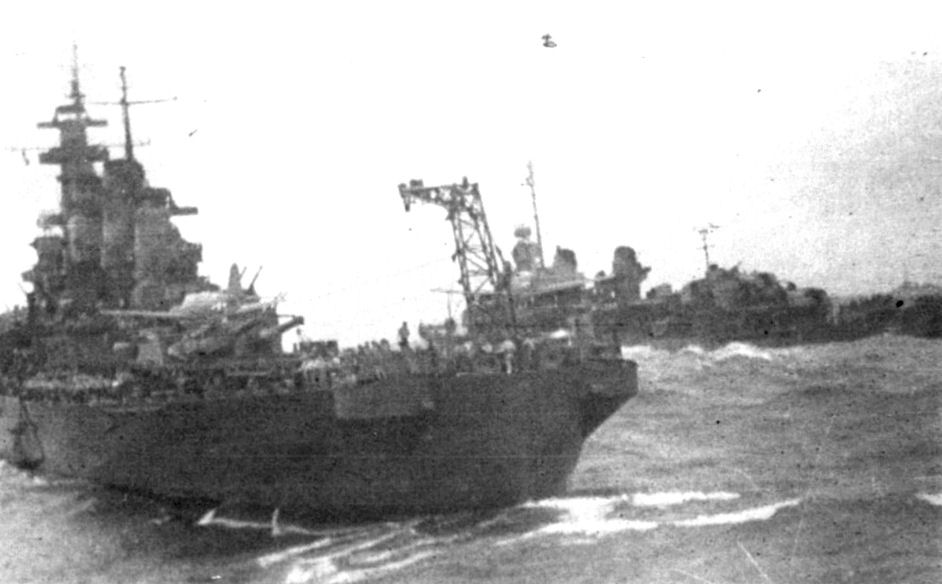
The Spence (right) attempting to fuel from the New Jersey
Halsey directed that the fueling operations be suspended and with in moments the Spence, with her foredeck and hull blackened with spilled fuel oil, broke away from the New Jersey. She had only managed to pump six thousand gallons into her bunkers; not nearly enough. Halsey directed the three emptiest destroyers, Spence, Hickox, and Maddox to remain behind with the tankers in order to refuel at the first opportunity as the rest of the task force sailed on.
After the Spence, now running on less than ten percent fuel capacity, collided with a tanker – her second crash of the day, this one causing several injuries to her crew – all attempts at parallel refueling were abandoned. Even an attempt at stern to bow refueling failed when the hoses snapped like rubber bands. After assessing the brutal conditions, the commander of the tanker group closed down the refueling attempts to the Spence, Hickox, and Maddox shortly after 4:00 p.m. As night fell on the 17th it was recommenced that the three destroyers flood their empty tanks with seawater to give them more ballast. Both Hickox and Maddox complied. For reasons never explained, the Spence did not.
By midnight on December 17th, the western edge of Typhoon Cobra's counterclockwise windstream was swirling into a cold front sweeping out of the arctic. But instead of bouncing of the mass of cold air to the northeast – away from the fleet – the storm accelerated and gained strength with winds exceeding 100 knots at its center.
On the morning of
the 18th, the Spence's barometer read 27.40 and the wind
speed indicator registered 125 knot winds. Great jagged bolys of
lightning illuminated the starboard sky. The power panel and circuits
had already shorted out, one by one. Her lights, radio, and radar
were gone, followed by the steering motors. Her masts were bent like
saplings, her whaleboat swung in the wind like ragged pennant, and
she was running on one boiler. He rudder had jammed hard to
starboard, which left her wallowing broadside to the seventy foot
waves, and a foot of salt water stood in all below deck compartments.
Men worked furiously to shore up her crumbling bulkheads. 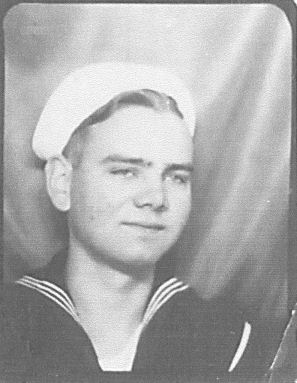
Then the after deckhouse buckled. There was fifty foot gash in the stern where the two depth charge racks had been ripped out and carried away by the wind and waves. The Pacific Ocean poured into the hull at the rate of fifteen hundred gallons a minute. In desperation, bucket brigades were organized, for all the good they would do. The Spence was a dying ship.
The Spence took a huge roll to port. The ship came back from the roll but did not swing to starboard like it should have. Another wave sent he listing deeper to port., and from this one she did not recover. The Spence was now on her side, at the bottom of a trough, with waves towering above her. Then she began to roll over, in the blink of an eye as tons of seawater lashed her exposed hull. The men below decks clogged the narrow passageways. They were bashed against the bulkheads in a desperate attempt to get out.
The ship rolled briefly back onto its side which halted the flow of the ocean inundating the below decks, then settled back into overturned position broken nearly in half. And then at around 11:00 a.m. the Spence was gone, swallowed by the sea. Some men found themselves in the water, others were trapped inside the sinking hull. What exactly happened to Myron, no one knows. As the storm subsided, only twenty four survivors were eventually pulled from the shark infested water, some of them two days after. Three hundred and fifteen men were lost.
Typhoon Cobra had a more devastating affect on the Third Fleet than the Japanese could ever inflict. Besides the Spence, the destroyers Hull and Monaghan were also lost. Twenty five other ships were damaged and more than two hundred aircraft were lost and destroyed. The human toll was staggering with 790 men lost.
Had
his family known the events happening halfway around the world those
few days before Christmas, it would certainly have been a sad
holiday. Quite a few letters had been arriving from Myron and they
were cherished, read and re-read. On January 5, 1945, they celebrated
Myron's twentieth birthday.
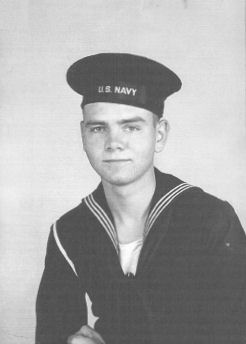
Seeman Myron Frost
Then on January 12, Mr. Gooch noted an item in the Twin Falls newspaper which was a shock for all. He ran to the Frosts with the news item reporting of three destroyers capsizing in a typhoon just off the island of Luzon on December 18th. One of the destroyers was the Spence; Myron's ship! The report was that there were twenty-two survivors. Through the anxious hours, Ira and the family were praying and had faith that he might be one of the survivors. It was on Monday, January 15th, that the dreaded telegram arrived, saying that Myron was missing. Even though it was expected, it was still a big shock getting the news.
On February 8th another telegram arrived stating there was no possibility that Myron had survived. A beautiful Memorial service was held in his honor on March 11th at the Burley Stake Taberfnacle. The blue star in the window indicating a son in the service was exchanged for a gold star to show that a son had given his life for his country.
The main source for this story are the memories of Myron by his mother, brother, and sisters. As few parts come from the Life Story of Ira L. Frost.
The details about Typhoon Cobra and the loss of the Spence are from 'Halsey's Typhoon” by Bob Drury and Tom Calvin

MEMORIAL SERVICE HELD FOR MYRON FROST
MARCH 11, 1945
Burley Stake House
Program
Vocal Selection “Some Day We'll Understand”
by a mixed chorus
Prayer by Ezra Bingham
A duet sung by Nona and Barbara Morrison
Life Sketch by Wilson Warner
Talk by L.E. Harris
Talk by Wallace Baker
Gene Price sang “Sleep, Sailor, Sleep”
Talk by Elwood Allred
Adonis Nielson led the congregation
in the Saluting of the Flag
The America Legion conducted a Military
Ceremony before the Service
Bishop Crane gave a few remarks
followed by the chorus singing “My Future Home”
Prayer by Morris Baker
The strange thing about this report of Myron's is it was taken back in the 6th grade in 1934. One day many, many, years later when Gerald was going to the Miller School, while out in the play ground, a piece of paper was blowing around and landed on his shoe. He picked it up and this is what it was!
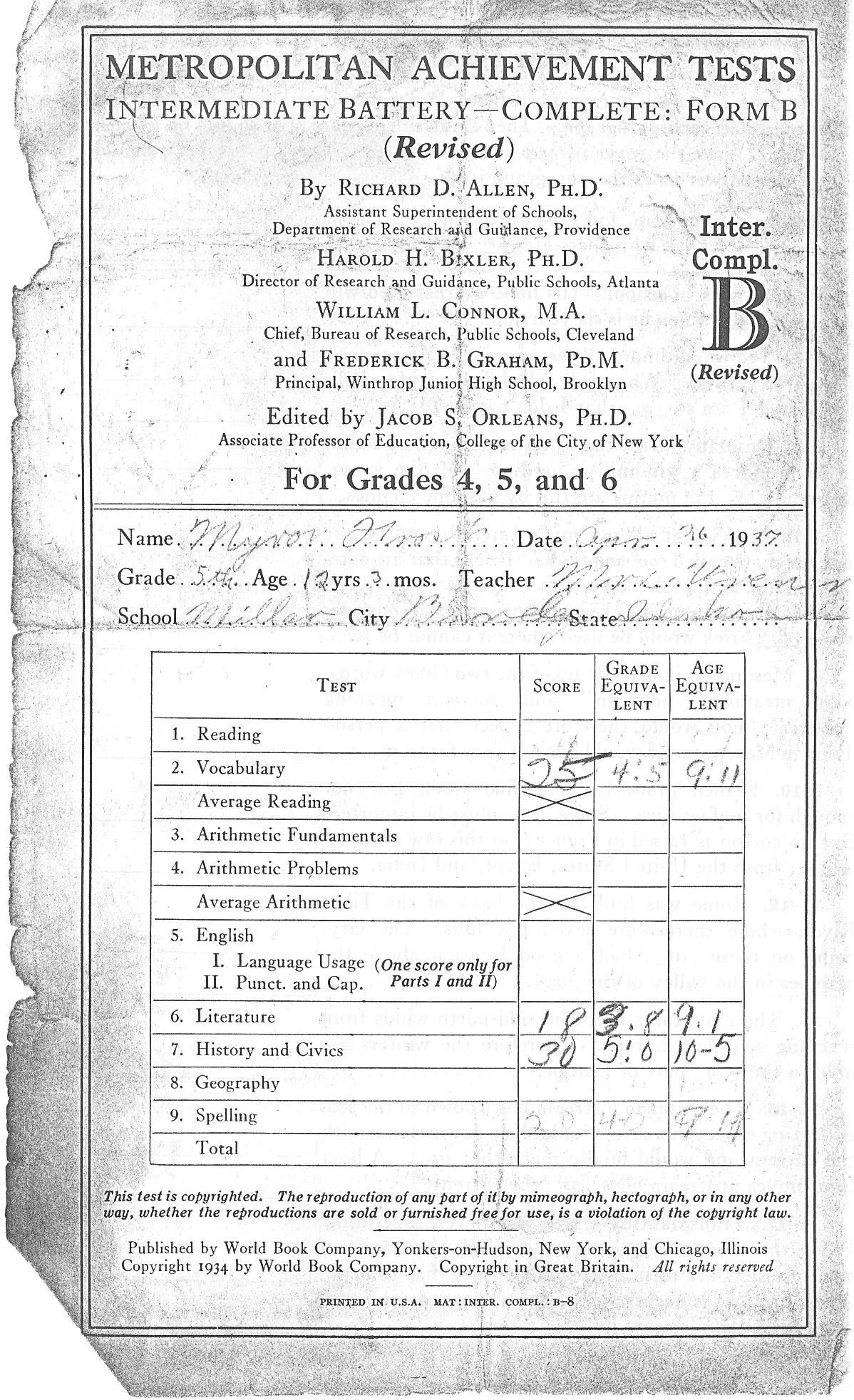
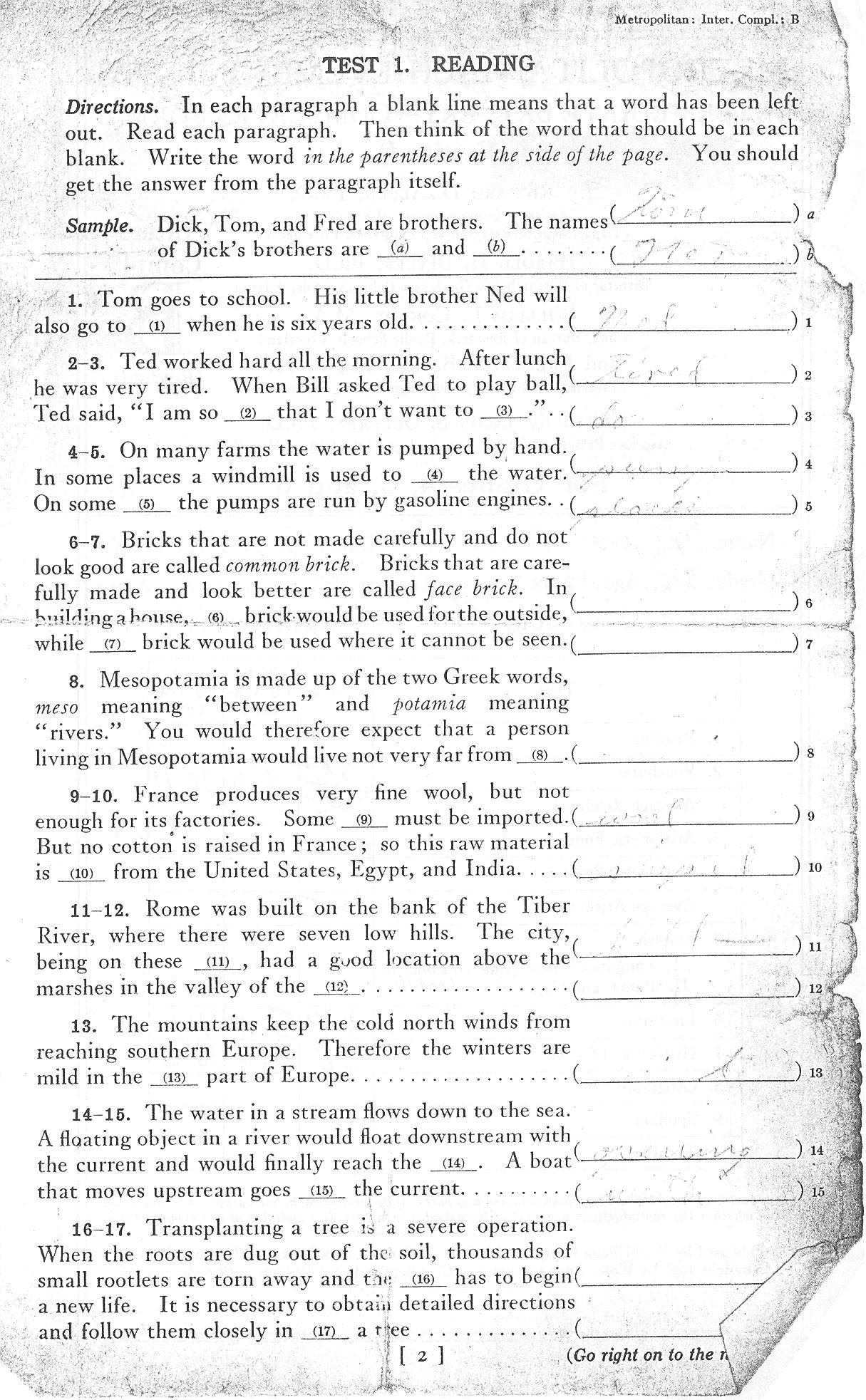 |
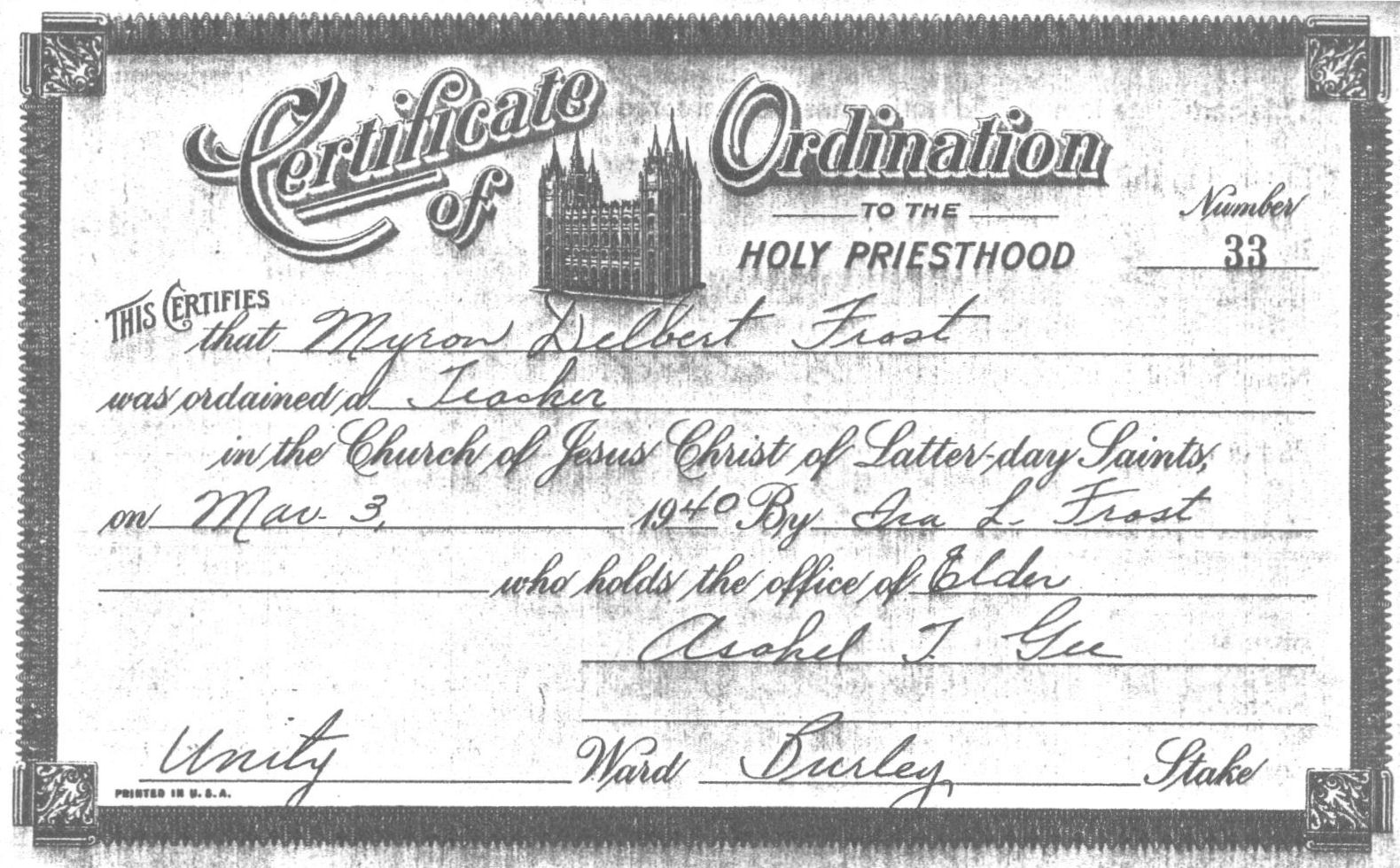
A Patriarchal Blessing given by Patriarch Henry Catmull upon the head of Myron Delbert Frost, son of Ira L and Vyla June Dayley. Born January 5, 1925 at Burley. Idaho.
Brother Myron Delbert Frost by the authority of the Holy Priesthood conferred upon me I place my hands upon your head and give you a Patriarchal Blessing according to the dictates of the Holy Spirit. I pray to my Heavenly Father at this time that He will guide me aright, that this blessing may be unto you a great comfort, as well as a spiritual and temporal guide throughout your life. I seal upon your head all former blessings that have been pronounced thereon by the servants of the living God with the blessings of thy progenitors, Abraham, Isaac and Jacob, Joseph and Ephraim. You are of the lineage of Ephraim. You were a noble spirit in the presence of your Father before you came to earth. You were brought to earth through goodly parents whose sole desire is for your spiritual uplift and advancement; therefore I say unto you my dear young brother forget the wrongs of the past. Let them be buried and forgotten and buckle on the armor of Christ and go forward with a renewed determination and in the Holy Priesthood which you bear, to overcome the powers of darkness and adversity who are continually on the alert seeking whom they may devour or overthrow and drag down from lofty heights; therefore it will behoove you to continually be on the alert and fortify yourself through prayer unto your Heavenly Father, thanking Him for all the blessings that come to you and asking for His protection and guidance. Do this my brother in faith, not doubting for your Father in Heaven is willing and always ready to lend a listening ear to His children and in as much as you have been called into the service of your country to defend righteous and God given principles, fear not, but go forth trusting in Him who is all powerful, who holds the destinies of all men and nations in His hands and though you may be surrounded by thousands or even tens of thousands, there is still the communication line between your God which cannot be broken by all the forces of the world but that might be broken through your own acts; therefore be careful. Let your prayers ascend to Him from the secrecy of your heart and He will hear you. Keep the Word of Wisdom. Refrain from all impure language all that which does not become a son of God. You may be persuaded by men, and companions may say, "Come on have a good time." That is the power of evil speaking through them, trying to get you to travel the path which they tread, which is the path of evil. But live, my dear brother so that you can look the world in the face with your head and chin up, with no fear of the outcome. Then men of honor will respect you and you will gain their admiration and will attain to important positions, both in and out of this church. You shall be a success in what you set your hands to do that is honest and just. I pray the Lord that He will give His angels charge concerning you that even if you are called to battle, you will go forth with that assurance that your Heavenly Father is with you as did the sons of Helaman when two thousand went forth to battle, with Helaman as their commander. Many were wounded but not one lost his life.
Read good books. Prepare yourself for greater responsibilities. Let your example be worthy of following, that you will be proud to look upon and not be ashamed. I seal you up against the destroyer that he may pass you by and not molest you until your mission on earth is complete according to the will of God. Keep your body clean and pure so that you can say to your parents, on your return, "Here I am, Father, Mother, clean in body as when I left you," the Lord bless you and preserve you. May He smile upon you and bring you peace and happiness. You are entitled to the blessings of the House of God and to every righteous desire of your heart that shall be for your good. The blessings of Heaven and earth shall be yours to enjoy.
I seal these blessings upon your head and seal you up unto eternal life to come forth in the morning of the resurrection with your loved ones to look upon the face of your Redeemer and receive your exaltation and eternal glory among the noble ones of Israel and this I do according to your faithfulness in keeping all the commandments of your Heavenly Father and in the name of Jesus Christ, Amen.
Henry Catmull, Patriarch
Place the cursor on the thumbnail and and click to display the picure.
(All of the pictures on this page can be viewed the same way.)
